- Our Mission

What Is Education For?
Read an excerpt from a new book by Sir Ken Robinson and Kate Robinson, which calls for redesigning education for the future.

What is education for? As it happens, people differ sharply on this question. It is what is known as an “essentially contested concept.” Like “democracy” and “justice,” “education” means different things to different people. Various factors can contribute to a person’s understanding of the purpose of education, including their background and circumstances. It is also inflected by how they view related issues such as ethnicity, gender, and social class. Still, not having an agreed-upon definition of education doesn’t mean we can’t discuss it or do anything about it.
We just need to be clear on terms. There are a few terms that are often confused or used interchangeably—“learning,” “education,” “training,” and “school”—but there are important differences between them. Learning is the process of acquiring new skills and understanding. Education is an organized system of learning. Training is a type of education that is focused on learning specific skills. A school is a community of learners: a group that comes together to learn with and from each other. It is vital that we differentiate these terms: children love to learn, they do it naturally; many have a hard time with education, and some have big problems with school.

There are many assumptions of compulsory education. One is that young people need to know, understand, and be able to do certain things that they most likely would not if they were left to their own devices. What these things are and how best to ensure students learn them are complicated and often controversial issues. Another assumption is that compulsory education is a preparation for what will come afterward, like getting a good job or going on to higher education.
So, what does it mean to be educated now? Well, I believe that education should expand our consciousness, capabilities, sensitivities, and cultural understanding. It should enlarge our worldview. As we all live in two worlds—the world within you that exists only because you do, and the world around you—the core purpose of education is to enable students to understand both worlds. In today’s climate, there is also a new and urgent challenge: to provide forms of education that engage young people with the global-economic issues of environmental well-being.
This core purpose of education can be broken down into four basic purposes.
Education should enable young people to engage with the world within them as well as the world around them. In Western cultures, there is a firm distinction between the two worlds, between thinking and feeling, objectivity and subjectivity. This distinction is misguided. There is a deep correlation between our experience of the world around us and how we feel. As we explored in the previous chapters, all individuals have unique strengths and weaknesses, outlooks and personalities. Students do not come in standard physical shapes, nor do their abilities and personalities. They all have their own aptitudes and dispositions and different ways of understanding things. Education is therefore deeply personal. It is about cultivating the minds and hearts of living people. Engaging them as individuals is at the heart of raising achievement.
The Universal Declaration of Human Rights emphasizes that “All human beings are born free and equal in dignity and rights,” and that “Education shall be directed to the full development of the human personality and to the strengthening of respect for human rights and fundamental freedoms.” Many of the deepest problems in current systems of education result from losing sight of this basic principle.
Schools should enable students to understand their own cultures and to respect the diversity of others. There are various definitions of culture, but in this context the most appropriate is “the values and forms of behavior that characterize different social groups.” To put it more bluntly, it is “the way we do things around here.” Education is one of the ways that communities pass on their values from one generation to the next. For some, education is a way of preserving a culture against outside influences. For others, it is a way of promoting cultural tolerance. As the world becomes more crowded and connected, it is becoming more complex culturally. Living respectfully with diversity is not just an ethical choice, it is a practical imperative.
There should be three cultural priorities for schools: to help students understand their own cultures, to understand other cultures, and to promote a sense of cultural tolerance and coexistence. The lives of all communities can be hugely enriched by celebrating their own cultures and the practices and traditions of other cultures.
Education should enable students to become economically responsible and independent. This is one of the reasons governments take such a keen interest in education: they know that an educated workforce is essential to creating economic prosperity. Leaders of the Industrial Revolution knew that education was critical to creating the types of workforce they required, too. But the world of work has changed so profoundly since then, and continues to do so at an ever-quickening pace. We know that many of the jobs of previous decades are disappearing and being rapidly replaced by contemporary counterparts. It is almost impossible to predict the direction of advancing technologies, and where they will take us.
How can schools prepare students to navigate this ever-changing economic landscape? They must connect students with their unique talents and interests, dissolve the division between academic and vocational programs, and foster practical partnerships between schools and the world of work, so that young people can experience working environments as part of their education, not simply when it is time for them to enter the labor market.
Education should enable young people to become active and compassionate citizens. We live in densely woven social systems. The benefits we derive from them depend on our working together to sustain them. The empowerment of individuals has to be balanced by practicing the values and responsibilities of collective life, and of democracy in particular. Our freedoms in democratic societies are not automatic. They come from centuries of struggle against tyranny and autocracy and those who foment sectarianism, hatred, and fear. Those struggles are far from over. As John Dewey observed, “Democracy has to be born anew every generation, and education is its midwife.”
For a democratic society to function, it depends upon the majority of its people to be active within the democratic process. In many democracies, this is increasingly not the case. Schools should engage students in becoming active, and proactive, democratic participants. An academic civics course will scratch the surface, but to nurture a deeply rooted respect for democracy, it is essential to give young people real-life democratic experiences long before they come of age to vote.
Eight Core Competencies
The conventional curriculum is based on a collection of separate subjects. These are prioritized according to beliefs around the limited understanding of intelligence we discussed in the previous chapter, as well as what is deemed to be important later in life. The idea of “subjects” suggests that each subject, whether mathematics, science, art, or language, stands completely separate from all the other subjects. This is problematic. Mathematics, for example, is not defined only by propositional knowledge; it is a combination of types of knowledge, including concepts, processes, and methods as well as propositional knowledge. This is also true of science, art, and languages, and of all other subjects. It is therefore much more useful to focus on the concept of disciplines rather than subjects.
Disciplines are fluid; they constantly merge and collaborate. In focusing on disciplines rather than subjects we can also explore the concept of interdisciplinary learning. This is a much more holistic approach that mirrors real life more closely—it is rare that activities outside of school are as clearly segregated as conventional curriculums suggest. A journalist writing an article, for example, must be able to call upon skills of conversation, deductive reasoning, literacy, and social sciences. A surgeon must understand the academic concept of the patient’s condition, as well as the practical application of the appropriate procedure. At least, we would certainly hope this is the case should we find ourselves being wheeled into surgery.
The concept of disciplines brings us to a better starting point when planning the curriculum, which is to ask what students should know and be able to do as a result of their education. The four purposes above suggest eight core competencies that, if properly integrated into education, will equip students who leave school to engage in the economic, cultural, social, and personal challenges they will inevitably face in their lives. These competencies are curiosity, creativity, criticism, communication, collaboration, compassion, composure, and citizenship. Rather than be triggered by age, they should be interwoven from the beginning of a student’s educational journey and nurtured throughout.
From Imagine If: Creating a Future for Us All by Sir Ken Robinson, Ph.D and Kate Robinson, published by Penguin Books, an imprint of Penguin Publishing Group, a division of Penguin Random House, LLC. Copyright © 2022 by the Estate of Sir Kenneth Robinson and Kate Robinson.

Getting Into College , Tips for Online Students , Tips for Students , Why Go to College
Top 10 Reasons Why Is Education Important

Most of us have grown up being taught the importance of education. But why is education important? Through your frustrating school years, you may have thought that it was a waste of time, or was just something that you needed to do in order to get a job. Truth be told, however, education goes so much beyond just getting a job and making your parents happy. In fact, it’s one of the most powerful tools out there.
What Is Education?
Education means studying in order to obtain a deeper knowledge and understanding of a variety of subjects to be applied to daily life. Education is not limited to just knowledge from books, but can also be obtained through practical experiences outside of the classroom.
Top 10 Reasons: Why Is Education Important?
There are many different understandings and definitions of what education is, but one thing can be universally agreed upon, which is the importance of education — and here’s why.
1. Provides Stability
Education provides stability in life, and it’s something that no one can ever take away from you. By being well-educated and holding a college degree , you increase your chances for better career opportunities and open up new doors for yourself.
2. Provides Financial Security
On top of stability, education also provides financial security, especially in today’s society. A good education tends to lead to a higher paying job, as well as provide you with the skills needed to get there. Educated and well-informed individuals also know how to use money-saving tactics. They are more likely to use coupon websites like EMUCoupon while shopping online to save their hard-earned money.
3. Needed For Equality
In order for the entire world to really become equal, it needs to start with education. If everyone was provided with the same opportunities to education , then there would be less gaps between social classes. Everyone would be able to have an equal chance at higher paying jobs — not just those that are already well-off.
4. Allows For Self-Dependency
The importance of education is evident when it comes to being self-dependent. If we are we educated, then it’s something that belongs to us, and only us, allowing us to rely on no one else other than ourselves. It can allow you to not only be financially independent, but also to make your own choices.
5. Make Your Dreams Come True
If you can dream it, you can achieve it. An education is the most powerful weapon you can possibly have, and with it, you can make all of your dreams come true. There are of course certain exceptions, depending on what you’re aiming for, but generally an education will take you as far as you’re willing to go.
6. A Safer World
Education is something that’s not only needed on a personal level, but also on a global level, as it’s something that keeps our world safe and makes it a more peaceful place. Education tends to teach people the difference between right and wrong, and can help people stay out of risky situations.
7. Confidence
Being self-confident is a major part of being successful in life. And what better way to gain that confidence than with an education? Your level of education is often considered a way to prove your knowledge, and it can give you the confidence to express your opinions and speak your mind.
8. A Part Of Society
In today’s society, having an education is considered a vital part of being accepted by those around you. Having an education is believed to make you a useful part of society, and can make you feel like a contributing member as well.
9. Economic Growth On A National Level
An educated society is crucial for economic growth. We need people to continue to learn and research in order to constantly stay innovative. Countries with higher literacy rates also tend to be in better economic situations. With a more educated population, more employment opportunities are opened.
10. Can Protect You
Education can protect you more than you know, not only on a financial level, but it can help prevent you from being taken advantage of by knowing how to read and write, such as knowing not to sign any bogus documents.
Photo by Pixabay from Pexels
Education is important for children.
Children are the future of our world, making education crucial for them. Their knowledge is what’s going to keep our world alive and flourishing.
At Childhood
During the childhood development stages, the importance of education is stronger than ever. It’s a time for children to learn social and mental skills that will be crucial for their growth and success in the future. Education at childhood also offers a chance for self-discovery and to learn about their unique interests.
The importance of education in our lives goes far beyond what we can read in a textbook. Education also provides childhood with knowledge such as how to produce artwork and make music. Education allows us to analyze what’s in front of us, and even learn from our mistakes.
Goal Building
By learning from a young age, children are given the chance to start building goals for themselves. Education means having the logic to set your mind to something and achieve it.
Importance Of Education In Society
For a modern society, education is of utmost importance. There are so many influences coming from all directions, and education can help us decipher what we should take as true, and what we should take with a grain of salt. Education can mold people into functional members of society with the right kinds of values.
Productivity
Education is needed for a productive society. Our population only continues to increase, and in turn, so do our needs. We need a strong and efficient workforce of educated people to provide us with the services we need for everyday life.
Why Is Education Important For a Nation?
The importance of education is seen in every aspect of life, and is especially crucial for the growth of a nation.
The Impact Education Has On The World
With education, people can become better citizens, knowing right from wrong, allowing for a better society where laws are followed. An educated nation knows about the importance of voting, doing so with the knowledge not blindly, but also having an understanding of what their party truly stands for. Education can also help people get jobs, which is what a nation thrives on.
Inspiring Quotes On What Education Truly Is
Why is education important, and what is it exactly? While every person has a different understanding of its true meaning, here are some of the most inspiring quotes by some legendary people.
- “Education is the most powerful weapon which you can use to change the world.” — Nelson Mandela
- “Education is the passport to the future, for tomorrow belongs to those who prepare for it today.” — Malcolm X
- “An investment in knowledge pays the best interest.” — Benjamin Franklin
- “Education is not preparation for life; education is life itself.” — John Dewey
What Are Some Other Reasons Why Education Is Important?
There are endless reasons why education is so important, especially since it also has endless connotations and meanings.
Mind And Body
Our mind and bodies are connected more than we know. With a powerful, well-educated mind, so too are our bodies.
We can not only know how to best take care of ourselves, but we can feel confident and good about ourselves, which will likely have a positive effect on our physical well-being . Education has even been proven to add years to our life . To be exact, each additional year of education was found to add as much as 1.7 years to our lives at the age of 35.
Personal Growth
The importance of education even extends itself to our personal growth. By constantly educating ourselves, asking questions and wanting to know more, we can move forward and achieve things we never imagined before.
Get To Know Yourself
Education can allow us to get to know ourselves better than ever. We can learn things about ourselves, whether it be through books, courses, or even consulting with a professional.
Photo by Burst from Pexels
Worldwide value.
Education is the best way to ensure a positive world value and view. Without a proper education, how else do we know what’s considered appropriate and how to behave?
While world peace may unfortunately seem like a far-fetched concept, with education we can get closer to this goal than we know. Education can teach us about our place in this world, and about our responsibility to humanity.
Teaches Values
Values are taught through education! Education exists far beyond the classroom or an exam. It’s taught at home, through what our parents and peers show us, and although not necessarily written down somewhere, such a teaching method is still a large aspect of what education entails.
Sharpens Your Thinking
Education is needed to think sharply and clearly!
Makes You Informed
Education makes you informed about the world around you, what’s going on and what kind of people are around you. Education can help you be more self-aware about your strengths and weaknesses, showing you were to shift your focus.
Logical Reasoning
When in an argument, if you aren’t well educated and don’t have your facts straight, then you aren’t likely to win. If you get upset about something, then being educated can also help you logically work through the situation and make sense of it, understanding all aspects.
Stay Focused
Education can help you stay focused and on track in the right direction by knowing what the right path is for you.
Allows For Innovation And Creativity
When it comes to being creative, in any way, shape, or form, the mind can only really reach its full potential if it’s been fed with the knowledge it needs to think outside the box.
Develop Life Skills
Education is the foundation of basic life skills and street smarts. While education might sound like a fancy technical term, it’s really everything we learn in life about how to best conduct ourselves from day to day.
Education can be the most freeing and empowering thing in the entire world!
Live Life To The Fullest
Truly living life to the fullest means being well-educated and holding a vast amount of knowledge about the world around us. It also means we continue to learn every day in all kinds of forms, whether it be from the people around us, newspapers, experiences, research, or traditional classes.
Breaks Barriers
Education breaks barriers between people, and allows people from across the globe to be empowered.
University of the People, a tuition-free , online university, is one powerful example of how education is being revolutionized – they offer students of all socio-economic backgrounds an equal chance at education.
Once upon a time, such a thing wouldn’t have been possible, but today such places like UoPeople have proven that these barriers truly can be broken through to receive higher education.
You Become Your Highest You
Education can allow you to become the best, fullest version of yourself, learning about what interests you, what you’re good at, becoming self-aware and conscious about the world around you. It can help you establish your place in this world, and feel complete.
Education In The Modern World
Education today is more important than ever before, and has reached new heights with new understandings of what it truly entails. Ask yourself “Why is education important?” and it will surely not be the same as anyone else’s answer.
While in modern society, holding a college degree is considered to be highly beneficial for a successful career and to be socially accepted, it is not the only means of education. Education is all around us in everything that we do, so use it wisely!
Related Articles
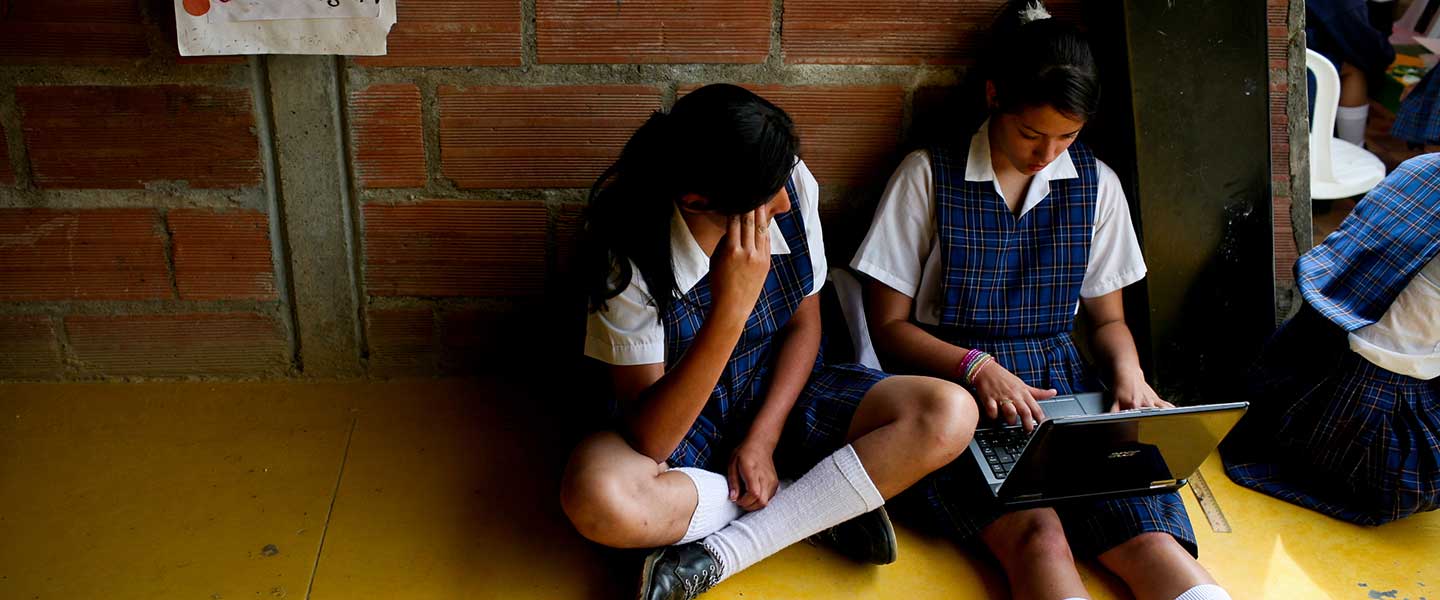
The World Bank Group is the largest financier of education in the developing world, working in 90 countries and committed to helping them reach SDG4: access to inclusive and equitable quality education and lifelong learning opportunities for all by 2030.
Education is a human right, a powerful driver of development, and one of the strongest instruments for reducing poverty and improving health, gender equality, peace, and stability. It delivers large, consistent returns in terms of income, and is the most important factor to ensure equity and inclusion.
For individuals, education promotes employment, earnings, health, and poverty reduction. Globally, there is a 9% increase in hourly earnings for every extra year of schooling . For societies, it drives long-term economic growth, spurs innovation, strengthens institutions, and fosters social cohesion. Education is further a powerful catalyst to climate action through widespread behavior change and skilling for green transitions.
Developing countries have made tremendous progress in getting children into the classroom and more children worldwide are now in school. But learning is not guaranteed, as the 2018 World Development Report (WDR) stressed.
Making smart and effective investments in people’s education is critical for developing the human capital that will end extreme poverty. At the core of this strategy is the need to tackle the learning crisis, put an end to Learning Poverty , and help youth acquire the advanced cognitive, socioemotional, technical and digital skills they need to succeed in today’s world.
In low- and middle-income countries, the share of children living in Learning Poverty (that is, the proportion of 10-year-old children that are unable to read and understand a short age-appropriate text) increased from 57% before the pandemic to an estimated 70% in 2022.
However, learning is in crisis. More than 70 million more people were pushed into poverty during the COVID pandemic, a billion children lost a year of school , and three years later the learning losses suffered have not been recouped . If a child cannot read with comprehension by age 10, they are unlikely to become fluent readers. They will fail to thrive later in school and will be unable to power their careers and economies once they leave school.
The effects of the pandemic are expected to be long-lasting. Analysis has already revealed deep losses, with international reading scores declining from 2016 to 2021 by more than a year of schooling. These losses may translate to a 0.68 percentage point in global GDP growth. The staggering effects of school closures reach beyond learning. This generation of children could lose a combined total of US$21 trillion in lifetime earnings in present value or the equivalent of 17% of today’s global GDP – a sharp rise from the 2021 estimate of a US$17 trillion loss.
Action is urgently needed now – business as usual will not suffice to heal the scars of the pandemic and will not accelerate progress enough to meet the ambitions of SDG 4. We are urging governments to implement ambitious and aggressive Learning Acceleration Programs to get children back to school, recover lost learning, and advance progress by building better, more equitable and resilient education systems.
Last Updated: Mar 25, 2024
The World Bank’s global education strategy is centered on ensuring learning happens – for everyone, everywhere. Our vision is to ensure that everyone can achieve her or his full potential with access to a quality education and lifelong learning. To reach this, we are helping countries build foundational skills like literacy, numeracy, and socioemotional skills – the building blocks for all other learning. From early childhood to tertiary education and beyond – we help children and youth acquire the skills they need to thrive in school, the labor market and throughout their lives.
Investing in the world’s most precious resource – people – is paramount to ending poverty on a livable planet. Our experience across more than 100 countries bears out this robust connection between human capital, quality of life, and economic growth: when countries strategically invest in people and the systems designed to protect and build human capital at scale, they unlock the wealth of nations and the potential of everyone.
Building on this, the World Bank supports resilient, equitable, and inclusive education systems that ensure learning happens for everyone. We do this by generating and disseminating evidence, ensuring alignment with policymaking processes, and bridging the gap between research and practice.
The World Bank is the largest source of external financing for education in developing countries, with a portfolio of about $26 billion in 94 countries including IBRD, IDA and Recipient-Executed Trust Funds. IDA operations comprise 62% of the education portfolio.
The investment in FCV settings has increased dramatically and now accounts for 26% of our portfolio.
World Bank projects reach at least 425 million students -one-third of students in low- and middle-income countries.
The World Bank’s Approach to Education
Five interrelated pillars of a well-functioning education system underpin the World Bank’s education policy approach:
- Learners are prepared and motivated to learn;
- Teachers are prepared, skilled, and motivated to facilitate learning and skills acquisition;
- Learning resources (including education technology) are available, relevant, and used to improve teaching and learning;
- Schools are safe and inclusive; and
- Education Systems are well-managed, with good implementation capacity and adequate financing.
The Bank is already helping governments design and implement cost-effective programs and tools to build these pillars.
Our Principles:
- We pursue systemic reform supported by political commitment to learning for all children.
- We focus on equity and inclusion through a progressive path toward achieving universal access to quality education, including children and young adults in fragile or conflict affected areas , those in marginalized and rural communities, girls and women , displaced populations, students with disabilities , and other vulnerable groups.
- We focus on results and use evidence to keep improving policy by using metrics to guide improvements.
- We want to ensure financial commitment commensurate with what is needed to provide basic services to all.
- We invest wisely in technology so that education systems embrace and learn to harness technology to support their learning objectives.
Laying the groundwork for the future
Country challenges vary, but there is a menu of options to build forward better, more resilient, and equitable education systems.
Countries are facing an education crisis that requires a two-pronged approach: first, supporting actions to recover lost time through remedial and accelerated learning; and, second, building on these investments for a more equitable, resilient, and effective system.
Recovering from the learning crisis must be a political priority, backed with adequate financing and the resolve to implement needed reforms. Domestic financing for education over the last two years has not kept pace with the need to recover and accelerate learning. Across low- and lower-middle-income countries, the average share of education in government budgets fell during the pandemic , and in 2022 it remained below 2019 levels.
The best chance for a better future is to invest in education and make sure each dollar is put toward improving learning. In a time of fiscal pressure, protecting spending that yields long-run gains – like spending on education – will maximize impact. We still need more and better funding for education. Closing the learning gap will require increasing the level, efficiency, and equity of education spending—spending smarter is an imperative.
- Education technology can be a powerful tool to implement these actions by supporting teachers, children, principals, and parents; expanding accessible digital learning platforms, including radio/ TV / Online learning resources; and using data to identify and help at-risk children, personalize learning, and improve service delivery.
Looking ahead
We must seize this opportunity to reimagine education in bold ways. Together, we can build forward better more equitable, effective, and resilient education systems for the world’s children and youth.
Accelerating Improvements
Supporting countries in establishing time-bound learning targets and a focused education investment plan, outlining actions and investments geared to achieve these goals.
Launched in 2020, the Accelerator Program works with a set of countries to channel investments in education and to learn from each other. The program coordinates efforts across partners to ensure that the countries in the program show improvements in foundational skills at scale over the next three to five years. These investment plans build on the collective work of multiple partners, and leverage the latest evidence on what works, and how best to plan for implementation. Countries such as Brazil (the state of Ceará) and Kenya have achieved dramatic reductions in learning poverty over the past decade at scale, providing useful lessons, even as they seek to build on their successes and address remaining and new challenges.
Universalizing Foundational Literacy
Readying children for the future by supporting acquisition of foundational skills – which are the gateway to other skills and subjects.
The Literacy Policy Package (LPP) consists of interventions focused specifically on promoting acquisition of reading proficiency in primary school. These include assuring political and technical commitment to making all children literate; ensuring effective literacy instruction by supporting teachers; providing quality, age-appropriate books; teaching children first in the language they speak and understand best; and fostering children’s oral language abilities and love of books and reading.
Advancing skills through TVET and Tertiary
Ensuring that individuals have access to quality education and training opportunities and supporting links to employment.
Tertiary education and skills systems are a driver of major development agendas, including human capital, climate change, youth and women’s empowerment, and jobs and economic transformation. A comprehensive skill set to succeed in the 21st century labor market consists of foundational and higher order skills, socio-emotional skills, specialized skills, and digital skills. Yet most countries continue to struggle in delivering on the promise of skills development.
The World Bank is supporting countries through efforts that address key challenges including improving access and completion, adaptability, quality, relevance, and efficiency of skills development programs. Our approach is via multiple channels including projects, global goods, as well as the Tertiary Education and Skills Program . Our recent reports including Building Better Formal TVET Systems and STEERing Tertiary Education provide a way forward for how to improve these critical systems.
Addressing Climate Change
Mainstreaming climate education and investing in green skills, research and innovation, and green infrastructure to spur climate action and foster better preparedness and resilience to climate shocks.
Our approach recognizes that education is critical for achieving effective, sustained climate action. At the same time, climate change is adversely impacting education outcomes. Investments in education can play a huge role in building climate resilience and advancing climate mitigation and adaptation. Climate change education gives young people greater awareness of climate risks and more access to tools and solutions for addressing these risks and managing related shocks. Technical and vocational education and training can also accelerate a green economic transformation by fostering green skills and innovation. Greening education infrastructure can help mitigate the impact of heat, pollution, and extreme weather on learning, while helping address climate change.
Examples of this work are projects in Nigeria (life skills training for adolescent girls), Vietnam (fostering relevant scientific research) , and Bangladesh (constructing and retrofitting schools to serve as cyclone shelters).
Strengthening Measurement Systems
Enabling countries to gather and evaluate information on learning and its drivers more efficiently and effectively.
The World Bank supports initiatives to help countries effectively build and strengthen their measurement systems to facilitate evidence-based decision-making. Examples of this work include:
(1) The Global Education Policy Dashboard (GEPD) : This tool offers a strong basis for identifying priorities for investment and policy reforms that are suited to each country context by focusing on the three dimensions of practices, policies, and politics.
- Highlights gaps between what the evidence suggests is effective in promoting learning and what is happening in practice in each system; and
- Allows governments to track progress as they act to close the gaps.
The GEPD has been implemented in 13 education systems already – Peru, Rwanda, Jordan, Ethiopia, Madagascar, Mozambique, Islamabad, Khyber Pakhtunkhwa, Sierra Leone, Niger, Gabon, Jordan and Chad – with more expected by the end of 2024.
(2) Learning Assessment Platform (LeAP) : LeAP is a one-stop shop for knowledge, capacity-building tools, support for policy dialogue, and technical staff expertise to support student achievement measurement and national assessments for better learning.
Supporting Successful Teachers
Helping systems develop the right selection, incentives, and support to the professional development of teachers.
Currently, the World Bank Education Global Practice has over 160 active projects supporting over 18 million teachers worldwide, about a third of the teacher population in low- and middle-income countries. In 12 countries alone, these projects cover 16 million teachers, including all primary school teachers in Ethiopia and Turkey, and over 80% in Bangladesh, Pakistan, and Vietnam.
A World Bank-developed classroom observation tool, Teach, was designed to capture the quality of teaching in low- and middle-income countries. It is now 3.6 million students.
While Teach helps identify patterns in teacher performance, Coach leverages these insights to support teachers to improve their teaching practice through hands-on in-service teacher professional development (TPD).
Our recent report on Making Teacher Policy Work proposes a practical framework to uncover the black box of effective teacher policy and discusses the factors that enable their scalability and sustainability.
Supporting Education Finance Systems
Strengthening country financing systems to mobilize resources for education and make better use of their investments in education.
Our approach is to bring together multi-sectoral expertise to engage with ministries of education and finance and other stakeholders to develop and implement effective and efficient public financial management systems; build capacity to monitor and evaluate education spending, identify financing bottlenecks, and develop interventions to strengthen financing systems; build the evidence base on global spending patterns and the magnitude and causes of spending inefficiencies; and develop diagnostic tools as public goods to support country efforts.
Working in Fragile, Conflict, and Violent (FCV) Contexts
The massive and growing global challenge of having so many children living in conflict and violent situations requires a response at the same scale and scope. Our education engagement in the Fragility, Conflict and Violence (FCV) context, which stands at US$5.35 billion, has grown rapidly in recent years, reflecting the ever-increasing importance of the FCV agenda in education. Indeed, these projects now account for more than 25% of the World Bank education portfolio.
Education is crucial to minimizing the effects of fragility and displacement on the welfare of youth and children in the short-term and preventing the emergence of violent conflict in the long-term.
Support to Countries Throughout the Education Cycle
Our support to countries covers the entire learning cycle, to help shape resilient, equitable, and inclusive education systems that ensure learning happens for everyone.
The ongoing Supporting Egypt Education Reform project , 2018-2025, supports transformational reforms of the Egyptian education system, by improving teaching and learning conditions in public schools. The World Bank has invested $500 million in the project focused on increasing access to quality kindergarten, enhancing the capacity of teachers and education leaders, developing a reliable student assessment system, and introducing the use of modern technology for teaching and learning. Specifically, the share of Egyptian 10-year-old students, who could read and comprehend at the global minimum proficiency level, increased to 45 percent in 2021.
In Nigeria , the $75 million Edo Basic Education Sector and Skills Transformation (EdoBESST) project, running from 2020-2024, is focused on improving teaching and learning in basic education. Under the project, which covers 97 percent of schools in the state, there is a strong focus on incorporating digital technologies for teachers. They were equipped with handheld tablets with structured lesson plans for their classes. Their coaches use classroom observation tools to provide individualized feedback. Teacher absence has reduced drastically because of the initiative. Over 16,000 teachers were trained through the project, and the introduction of technology has also benefited students.
Through the $235 million School Sector Development Program in Nepal (2017-2022), the number of children staying in school until Grade 12 nearly tripled, and the number of out-of-school children fell by almost seven percent. During the pandemic, innovative approaches were needed to continue education. Mobile phone penetration is high in the country. More than four in five households in Nepal have mobile phones. The project supported an educational service that made it possible for children with phones to connect to local radio that broadcast learning programs.
From 2017-2023, the $50 million Strengthening of State Universities in Chile project has made strides to improve quality and equity at state universities. The project helped reduce dropout: the third-year dropout rate fell by almost 10 percent from 2018-2022, keeping more students in school.
The World Bank’s first Program-for-Results financing in education was through a $202 million project in Tanzania , that ran from 2013-2021. The project linked funding to results and aimed to improve education quality. It helped build capacity, and enhanced effectiveness and efficiency in the education sector. Through the project, learning outcomes significantly improved alongside an unprecedented expansion of access to education for children in Tanzania. From 2013-2019, an additional 1.8 million students enrolled in primary schools. In 2019, the average reading speed for Grade 2 students rose to 22.3 words per minute, up from 17.3 in 2017. The project laid the foundation for the ongoing $500 million BOOST project , which supports over 12 million children to enroll early, develop strong foundational skills, and complete a quality education.
The $40 million Cambodia Secondary Education Improvement project , which ran from 2017-2022, focused on strengthening school-based management, upgrading teacher qualifications, and building classrooms in Cambodia, to improve learning outcomes, and reduce student dropout at the secondary school level. The project has directly benefited almost 70,000 students in 100 target schools, and approximately 2,000 teachers and 600 school administrators received training.
The World Bank is co-financing the $152.80 million Yemen Restoring Education and Learning Emergency project , running from 2020-2024, which is implemented through UNICEF, WFP, and Save the Children. It is helping to maintain access to basic education for many students, improve learning conditions in schools, and is working to strengthen overall education sector capacity. In the time of crisis, the project is supporting teacher payments and teacher training, school meals, school infrastructure development, and the distribution of learning materials and school supplies. To date, almost 600,000 students have benefited from these interventions.
The $87 million Providing an Education of Quality in Haiti project supported approximately 380 schools in the Southern region of Haiti from 2016-2023. Despite a highly challenging context of political instability and recurrent natural disasters, the project successfully supported access to education for students. The project provided textbooks, fresh meals, and teacher training support to 70,000 students, 3,000 teachers, and 300 school directors. It gave tuition waivers to 35,000 students in 118 non-public schools. The project also repaired 19 national schools damaged by the 2021 earthquake, which gave 5,500 students safe access to their schools again.
In 2013, just 5% of the poorest households in Uzbekistan had children enrolled in preschools. Thanks to the Improving Pre-Primary and General Secondary Education Project , by July 2019, around 100,000 children will have benefitted from the half-day program in 2,420 rural kindergartens, comprising around 49% of all preschool educational institutions, or over 90% of rural kindergartens in the country.
In addition to working closely with governments in our client countries, the World Bank also works at the global, regional, and local levels with a range of technical partners, including foundations, non-profit organizations, bilaterals, and other multilateral organizations. Some examples of our most recent global partnerships include:
UNICEF, UNESCO, FCDO, USAID, Bill & Melinda Gates Foundation: Coalition for Foundational Learning
The World Bank is working closely with UNICEF, UNESCO, FCDO, USAID, and the Bill & Melinda Gates Foundation as the Coalition for Foundational Learning to advocate and provide technical support to ensure foundational learning. The World Bank works with these partners to promote and endorse the Commitment to Action on Foundational Learning , a global network of countries committed to halving the global share of children unable to read and understand a simple text by age 10 by 2030.
Australian Aid, Bernard van Leer Foundation, Bill & Melinda Gates Foundation, Canada, Echida Giving, FCDO, German Cooperation, William & Flora Hewlett Foundation, Conrad Hilton Foundation, LEGO Foundation, Porticus, USAID: Early Learning Partnership
The Early Learning Partnership (ELP) is a multi-donor trust fund, housed at the World Bank. ELP leverages World Bank strengths—a global presence, access to policymakers and strong technical analysis—to improve early learning opportunities and outcomes for young children around the world.
We help World Bank teams and countries get the information they need to make the case to invest in Early Childhood Development (ECD), design effective policies and deliver impactful programs. At the country level, ELP grants provide teams with resources for early seed investments that can generate large financial commitments through World Bank finance and government resources. At the global level, ELP research and special initiatives work to fill knowledge gaps, build capacity and generate public goods.
UNESCO, UNICEF: Learning Data Compact
UNESCO, UNICEF, and the World Bank have joined forces to close the learning data gaps that still exist and that preclude many countries from monitoring the quality of their education systems and assessing if their students are learning. The three organizations have agreed to a Learning Data Compact , a commitment to ensure that all countries, especially low-income countries, have at least one quality measure of learning by 2025, supporting coordinated efforts to strengthen national assessment systems.
UNESCO Institute for Statistics (UIS): Learning Poverty Indicator
Aimed at measuring and urging attention to foundational literacy as a prerequisite to achieve SDG4, this partnership was launched in 2019 to help countries strengthen their learning assessment systems, better monitor what students are learning in internationally comparable ways and improve the breadth and quality of global data on education.
FCDO, Bill & Melinda Gates Foundation: EdTech Hub
Supported by the UK government’s Foreign, Commonwealth & Development Office (FCDO), in partnership with the Bill & Melinda Gates Foundation, the EdTech Hub is aimed at improving the quality of ed-tech investments. The Hub launched a rapid response Helpdesk service to provide just-in-time advisory support to 70 low- and middle-income countries planning education technology and remote learning initiatives.
MasterCard Foundation
Our Tertiary Education and Skills global program, launched with support from the Mastercard Foundation, aims to prepare youth and adults for the future of work and society by improving access to relevant, quality, equitable reskilling and post-secondary education opportunities. It is designed to reframe, reform, and rebuild tertiary education and skills systems for the digital and green transformation.
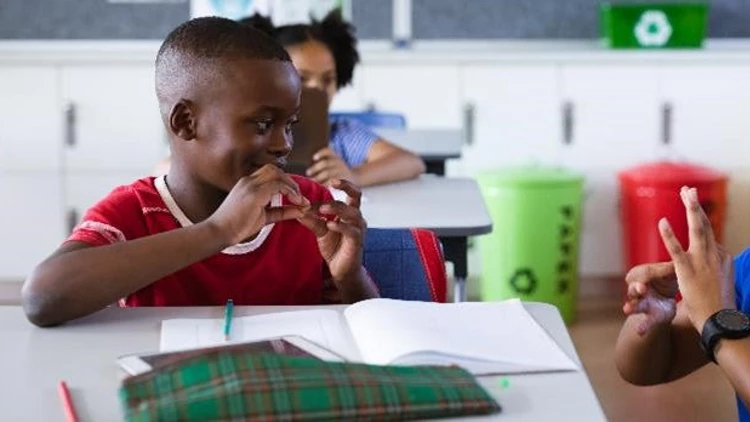
The “how to” of inclusive education policy design
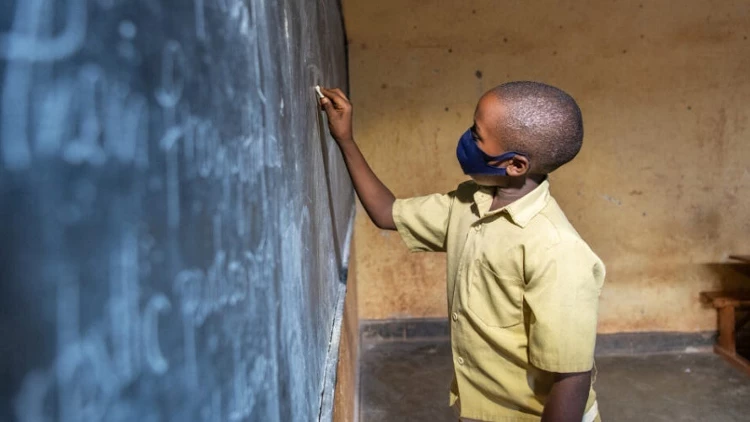
Including refugees in national education systems

How generative AI can enrich teaching and learning
Areas of focus.
Digital Technologies
Early Childhood Development
Education Data & Measurement
Education Finance
Education in Fragile, Conflict & Violence Contexts
Girls’ Education
Higher Education
Inclusive Education
Initiatives
- Show More +
- Tertiary Education and Skills Program
- Service Delivery Indicators
- Evoke: Transforming education to empower youth
- Global Education Policy Dashboard
- Global Education Evidence Advisory Panel
- Show Less -
Collapse and Recovery: How the COVID-19 Pandemic Eroded Human Capital and What to Do About It
BROCHURES & FACT SHEETS
Publication: Realizing Education's Promise: A World Bank Retrospective – August 2023
Education and Climate Change flyer - November 2022
Learning Losses Brochure - October 2022
World Bank Group Education Fact Sheet - September 2022
STAY CONNECTED
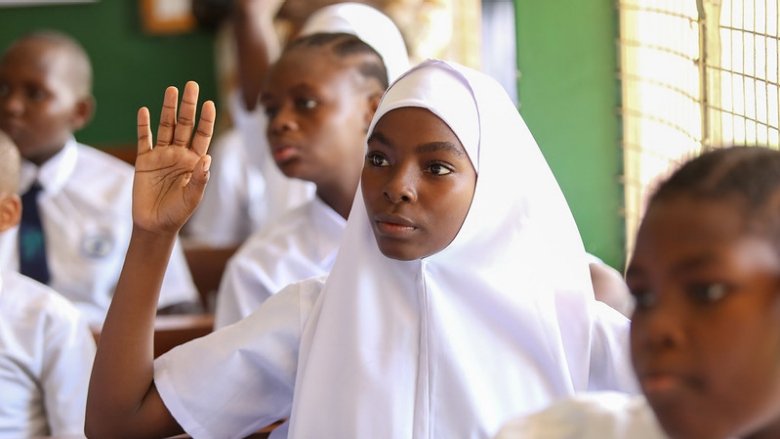
Human Development Topics
Around the bank group.
Find out what the Bank Group's branches are doing in education
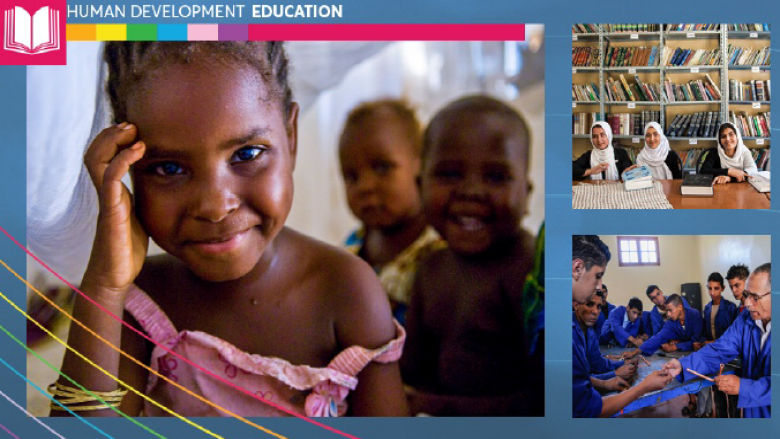
Global Education Newsletter - December 2023-January 2024
What's happening in the World Bank Education Global Practice? Read to learn more.
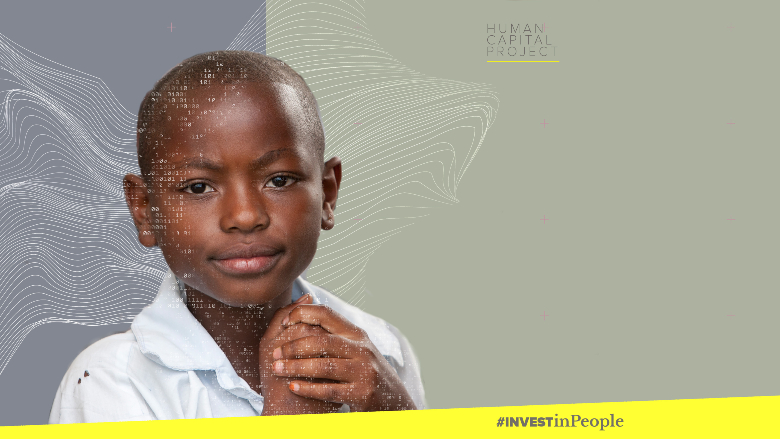
Human Capital Project
The Human Capital Project is a global effort to accelerate more and better investments in people for greater equity and economic growth.
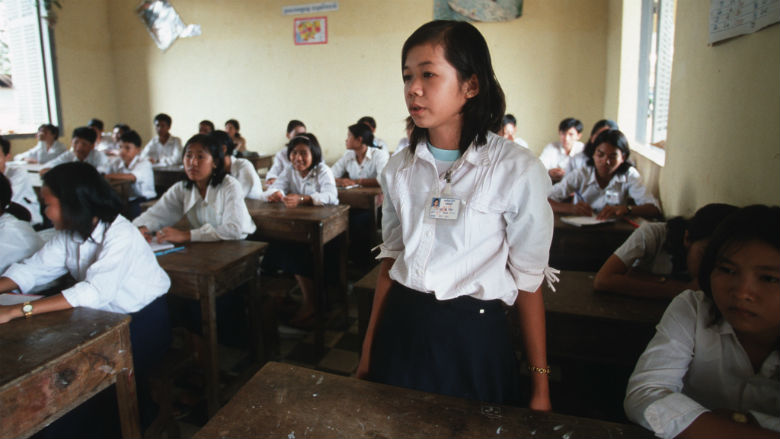
Impact Evaluations
Research that measures the impact of education policies to improve education in low and middle income countries.
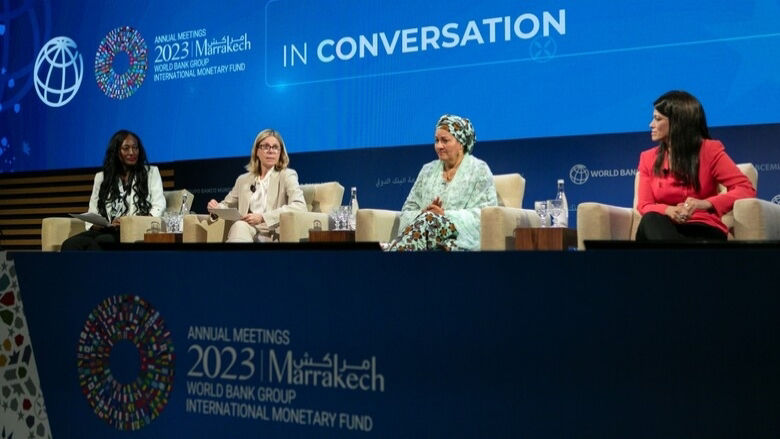
Investing in People for a Livable Planet
Global thought leaders came together to champion investments in people to eradicate poverty on a livable planet.
Additional Resources
This site uses cookies to optimize functionality and give you the best possible experience. If you continue to navigate this website beyond this page, cookies will be placed on your browser. To learn more about cookies, click here .
- Current Students
- Faculty / Staff
- Paying for College
- Alumni Services
- Partnerships
- Program Finder
- Affordable, Flexible, Accessible
- Distance Education
- All Online Courses & Degrees
- Baccalaureate Online
- Graduate Online
- Start Dates
- Admissions, Costs & Aid
- Faculty and Contacts
- Academic and Career Support
- Student Testimonials
- Distance Education Advantage
- About Hybrid Learning
- Hybrid Learning Degrees
- Admissions Requirements
- Top Destination Courses
- Student Life
- Academic Support
- Academic Calendar
- Faculty & Contacts
- Technical Institute for Environmental Professions
- Term Calendar
- Sustainable Ventures
- Careers & Outcomes
- About Unity
- Office of the President
- Announcing Our Evolution
- Sustainable Achievements & Initiatives
- Reinventing College
- Extended Reality (XR)
- Commencement
- Give to Unity Environmental University
- Institutional Communications
- Unity Environmental University News

Home / News / Why Is Education Important? The Power Of An Educated Society

Why Is Education Important? The Power Of An Educated Society
Looking for an answer to the question of why is education important? We address this query with a focus on how education can transform society through the way we interact with our environment.
Whether you are a student, a parent, or someone who values educational attainment, you may be wondering how education can provide quality life to a society beyond the obvious answer of acquiring knowledge and economic growth. Continue reading as we discuss the importance of education not just for individuals but for society as a whole.

Harness the power of education to build a more sustainable modern society with a degree from Unity Environmental University .
How Education Is Power: The Importance Of Education In Society
Why is education so important? Nelson Mandela famously said, “Education is the most powerful weapon which you can use to change the world.” An educated society is better equipped to tackle the challenges that face modern America, including:
- Climate change
- Social justice
- Economic inequality
Education is not just about learning to read and do math operations. Of course, gaining knowledge and practical skills is part of it, but education is also about values and critical thinking. It’s about finding our place in society in a meaningful way.
Environmental Stewardship
A study from 2022 found that people who belong to an environmental stewardship organization, such as the Leave No Trace Center for Outdoor Ethics, are likely to have a higher education level than those who do not. This suggests that quality education can foster a sense of responsibility towards the environment.
With the effects of climate change becoming increasingly alarming, this particular importance of education is vital to the health, safety, and longevity of our society. Higher learning institutions can further encourage environmental stewardship by adopting a framework of sustainability science .

The Economic Benefits Of Education
Higher education can lead to better job opportunities and higher income. On average, a person with a bachelor’s degree will make $765,000 more in their lifetime than someone with no degree. Even with the rising costs of tuition, investment in higher education pays off in the long run. In 2020, the return on investment (ROI) for a college degree was estimated to be 13.5% to 35.9% .
Green jobs like environmental science technicians and solar panel installers have high demand projections for the next decade. Therefore, degrees that will prepare you for one of these careers will likely yield a high ROI. And, many of these jobs only require an associate’s degree or certificate , which means lower overall education costs.
Unity helps students maximize their ROI with real-world experience in the field as an integral part of every degree program.
10 Reasons Why School Is Important
Education is not just an individual pursuit but also a societal one. In compiling these reasons, we focused on the question, “How does education benefit society?” Overall, higher education has the power to transform:
- Individuals’ sense of self
- Interpersonal relationships
- Social communities
- Professional communities
Cognitive Development
Neuroscience research has proven that the brain is a muscle that can retain its neuroplasticity throughout life. However, like other muscles, it must receive continual exercise to remain strong. Higher education allows people of any age to improve their higher-level cognitive abilities like problem-solving and decision-making. This can make many parts of life feel more manageable and help society run smoothly.
Emotional Intelligence
Emotional intelligence is key to workplace success. Studies show that people with emotional intelligence exhibit more:
- Self-awareness
- Willingness to try new things
- Innovative thinking
- Active listening
- Collaboration skills
- Problem-solving abilities
By attending higher education institutions that value these soft skills, students can improve their emotional intelligence as part of their career development in college.
Technological Literacy
Many careers in today’s job market use advanced technology. To prepare for these jobs, young people likely won’t have access to these technologies to practice on their own. That’s part of why so many STEM career paths require degrees. It’s essential to gain technical knowledge and skills through a certified program to safely use certain technologies. And, educated scientists are more likely to make new technological discoveries .
Cultural Awareness
Education exposes individuals to different cultures and perspectives. Being around people who are different has the powerful ability to foster acceptance. Acceptance benefits society as a whole. It increases innovation and empathy.
College also gives students an opportunity to practice feeling comfortable in situations where there are people of different races, genders, sexualities, and abilities. Students can gain an understanding of how to act respectfully among different types of people, which is an important skill for the workplace. This will only become more vital as our world continues to become more globalized.
Ethical and Moral Development
Another reason why school is important is that it promotes ethical and moral development. Many schools require students to take an ethics course in their general education curriculum. However, schools can also encourage character development throughout their programs by using effective pedagogical strategies including:
- Class debates and discussions
- Historical case studies
- Group projects
Unity’s distance learning programs include an ethical decision-making class in our core curriculum.

Ready To Learn More About Unity Environmental University?
Communication Skills
Effective written and verbal communication skills are key for personal and professional success. Higher education programs usually include at least one communication course in their general education requirements. Often the focus in these classes is on writing skills, but students can also use college as an opportunity to hone their presentation and public speaking skills. Courses such as Multimedia Communication for Environmental Professionals provide many opportunities for this.
Civic Engagement
According to a Gallup survey , people with higher education degrees are:
- More likely to participate in civic activities such as voting and volunteering
- Less likely to commit crimes
- More likely to get involved in their local communities
All these individual acts add up to make a big difference in society. An educated electorate is less likely to be swayed by unethical politicians and, instead, make choices that benefit themselves and their community. Because they are more involved, they are also more likely to hold elected officials accountable.
Financial Stability
The right degree can significantly expand your career opportunities and improve your long-term earning potential. Not all degrees provide the same level of financial stability, so it’s important to research expected salary offers after graduation and job demand outlook predictions for your desired field. Consider the return on investment for a degree from an affordable private school such as Unity Environmental University .
Environmental Awareness
We have already discussed why education is important for environmental stewardship. Education can also lead to better environmental practices in the business world. By building empathy through character education and ethics courses, institutions can train future business leaders to emphasize human rights and sustainability over profits. All types and sizes of businesses can incorporate sustainable practices, but awareness of the issues and solutions is the first step.
Lifelong Learning
The reasons why education is important discussed so far focus on institutional education. However, education can happen anywhere. Attending a university that values all kinds of learning will set students up with the foundation to become lifelong learners. Research demonstrates that lifelong learners tend to be healthier and more fulfilled throughout their lives. When societies emphasize the importance of education, they can boost their overall prosperity.

The Role Of Unity Environmental University In Society
Environmentally conscious education is extremely valuable and should be accessible to all. Unity Environmental University offers tuition prices that are comparable to public universities, and financial aid is available to those who qualify. Courses last five weeks so that students can focus on only one class at a time. This ensures all learners are set up for academic success.
Unity believes in supporting students holistically to maximize the power of education. This includes mental health services, experiential learning opportunities , and job placement assistance . Students in our hybrid programs can take classes at several field stations throughout Maine and enjoy the beautiful nature surrounding the campus for outdoor recreation.
Sustainable Initiatives
Some highlights from Unity Environmental University’s many sustainable initiatives:
- All programs include at least one sustainability learning outcome
- All research courses are focused on sustainability research
- Reduced building energy use by 25% across campus
- 100% of food waste is recycled into energy
- Campus features a net-zero LEED Platinum-certified classroom/office building
While many schools value sustainability, Unity stands out because everything we do is about sustainability. We also recognize our responsibility to model how a sustainable business can operate in a manner that’s fiscally viable and socially responsible.
Make An Impact At Unity Environmental University
While the phrase ‘education is power’ may sound cliche, it is also resoundingly true. Higher education has the power to transform individuals and societies. Unity Environmental University understands its power to make a positive impact on the world. That’s why we were the first university to divest from fossil fuels.
This year, we celebrated our largest incoming class ever , showing that students want an education system that aligns with their values. In addition to our commitment to sustainability, we offer flexibility to students with start dates all year round for our online degree programs .

Start Your Journey

Looking for Answers
Get More Info
© Unity Environmental University 2024. “America’s Environmental University.™”
Privacy Overview

Online Students
For All Online Programs
International Students
On Campus, need or have Visa
Campus Students
For All Campus Programs
Why is Education Important and What Impact Has It Had on Your Life?

At Southern New Hampshire University (SNHU), we believe in the power of education to transform lives – and we witness the transformative journeys our students embark on while they earn their degrees and beyond. The stories are personal but each learner begins with a simple premise: Education is important.
We asked SNHU leaders and staff to share their thoughts on education and how it has impacted their lives.
Dr. Paul LeBlanc, President, Southern New Hampshire University

We know that people with college degrees vote more, divorce less, smoke less and the list goes on . Take the two together - personal development and social mobility - and education is an incredible force for good. In many ways, it is critical to the American narrative of self-improvement, merit and mobility.
It (education) has changed everything. It put me on a trajectory to an incredibly rewarding career. It has allowed a life for my daughters that their grandparents could scarcely imagine. It has allowed me to connect with the distant past through literature and history and art and to imagine a better future through philosophy, political science, and sociology.
Really, it feels like the question might be "Is there any aspect of your life education hasn't touched?" and then the answer could be simple. It would be "no."
Amelia Manning, Chief Operating Officer

Four years later, after minoring in gender studies and reading Toni Morrison’s “The Bluest Eye,” I had what some would call a light-bulb moment. The actual message I had been given, but wasn’t at the time ready to hear, was about power and privilege. It was not a personal attack, as I’d initially interpreted it to be, but instead about expanding my awareness and understanding of how power works and the conscious and unconscious ways it influences each of us. It wasn’t until I read “The Bluest Eye,” and saw the world through the eyes of a child who believed she’d be happy if only she had blue eyes, that I fully understood.
Education, and learning, at its best pushes the boundaries of what we believe to be true. It opens doors and windows on our world that sheds light on our own beliefs and, in turn, on our understanding of the world and how it works and how we can make it a better place. Education is, and should be, transformative, not only for an individual, but for society.
As I stated earlier, I believe that education is transformative. It can change the trajectory of your life just as it can help to shine the light for you on opportunities that you would never have considered or believed were possible. I have seen impact not only for me, but for the thousands of students I’ve had the honor of working with here at SNHU.
Dr. Gregory Fowler, former President, Global Campus

Humans are constantly forced to make choices (some don’t recognize that even choosing not to choose is a choice), all of which have repercussions. Education positions us to make the most informed choices and therefore live with the consequences, even when things don’t turn out as we expect, because even then, the learned person understands that they are being educated.
Education has led me on a journey around the world—to Europe, Australia, Central America, as well as almost every state in the U.S. I continue to be awed by the various permutations of our existence. They are so different and yet at their core, they all operate with the same basic principles that reinforce that no matter how different we are, we all continue to be so very human, driven not only by basic human needs but by our passions, our fears and our hopes.
Autumn Earnshaw Fillion, Military Academic Advising Team Lead

Education gives us a wider range of experience, makes us think about things and see things in a way we might not have before. Education can build confidence and trust within us. Beyond the "book" knowledge an education provides, it displays commitment and determination.
I know it is cliché to say, but education has opened doors for me professionally and personally. I love my job and the career that my master's degree led me to. I have met awesome people along the way that have shaped my life. Education has become my profession so all I have and am has been influenced by my education.
Amy Stevens, Vice President, Academic Resources & Technology, Executive Director of CBE Programs

I can’t think of anything in my life that hasn’t been touched by education. I am on my fourth career, three of which didn’t exist when I graduated college. I can recreate myself because I have a strong foundation in critical thinking skills, I can write and do some basic math, I can learn what I don’t know and gain wisdom from my mistakes.
Education continues to have an impact on my life, and hopefully I can continue to add value to the education SNHU students earn through my work in and out of the classroom.
Dr. Jeffrey Czarnec, Associate Dean, Criminal Justice and Social Sciences

Education has allowed for ME to have a positive impact on scores of others. An education is to be shared, it must contribute to the well-being of others and must provoke change where none had previously occurred.
Cheryl Frederick, Senior Associate Dean, STEM

I grew up in a small town and was raised by a single mother. I watched my mother's job opportunities improve after she finished her college degree. This instilled how important education is and I made a decision at a young age that I would go to college. I always loved STEM-related classes and the latest innovations in technology. Education has allowed me to participate in the forefront of the application of innovative information technology and to connect with very interesting individuals. I have had the privilege of working for some amazing companies, on interesting projects, and been able to see different areas of the country due to work travel.
Kristi Durette, Associate Vice President | Institutional Advancement

I believe at my core I have a curiosity that encourages me to always be a learner; that every interaction is an opportunity to educate and be educated. And in those exchanges, the opportunity to build a more informed and engaged community. Teachers who created opportunities for students like me to engage in learning, decision-making about community values and shared responsibility for building the community come in the form of leaders, peers, students, neighbors and strangers we encounter as life unfolds. I feel like I learn something about myself and my world every day and that is the greatest gift.
Matthew Belanger, Associate Vice President of Academic Strategy and Operations

My education has had a profound impact on my life. It has provided me with the opportunity to positively impact the lives of others in various, countless ways. Without my education I would not be where I am today, in a position to help other students (many of whom are the first in their family like I was) be successful in their own pursuit of a degree.
The process of earning my education also had a significant impact. I was able to work with students of all ages to understand how students learn best and what that learning (and education) really means to them. My own education has taught me about diversity, strength, hard work, motivation and fulfillment.
Now as a father, what I have learned about education will be passed down to my children and my children’s children. They will grow up knowing how important their education is and how much I’ll be there to support them.
Tim Lehmann, Vice President of Student Financial Services

It has had an incredible impact on my life. It continues to impact my attitudes and altitude. I continue to believe that there is an "education effect" that correlates to better social and economic outcomes based on how much education a person has. I know in my life this is true.
Dr. Gwen Britton, Associate Vice President, STEM Professions

Knowledge also contributes to understanding of how different cultures and geographies live out their lives – differences in perspective, beliefs, experiences and how they influence the world as a whole; again, more knowledge, more connections between what we know and how we know it.
I feel like I have lived a pretty charmed life. I’ve lived in many different places across the United States, from east to west and in the middle too. I also lived in Europe and Guam. I was exposed to different cultures and educational perspectives from the first day of my education. Learning from different people in different places made me want to try to teach others as well. The biggest impact it has had on my life is my desire to pay it forward and help others discover their own potential through learning.
Tiffany Fifer, Director of Online Engagement

My father has a high school GED and this limited his career choices in life. While he is one of the hardest workers I know, furthering his education would have opened so many more doors for him. It was very important to him that his children have the chance to go to college.
Through Alternative Break trips , I have seen college students be transformed by relief work in an impacted community. These students put their own luxuries aside, learned about new cultures and rolled up their sleeves to make the world a little better. Many have gone on to work in service organizations and share their talents with the world. Education makes this type of growth possible.
Education has taken me around the world. I have learned new languages, lived with students from different countries, helped students study abroad and traveled with students through Italy and the Dominican Republic.
Education has also taught me how to solve problems. The position I now hold in online student engagement didn’t exist when I was in college and there aren’t many colleagues in the field doing this work yet. My education has given me the confidence to take risks, analyze opportunities and determine how we can lead in this area.
Finally, education has given me the opportunity to pay it forward. So many wonderful mentors had such an impact on me growing up and I feel it is my duty (and complete pleasure) to support our students through their own journey of co-curricular involvement and education.
Pamme Boutselis ‘15, ‘17G is a staff writer and senior content director in higher education. Follow her on Twitter @pammeb or connect on LinkedIn .
Explore more content like this article

What is a Capstone Project in College?

How Does Financial Aid Work? A Comprehensive Breakdown

What is a Scholarship and What Types are Available?
About southern new hampshire university.

SNHU is a nonprofit, accredited university with a mission to make high-quality education more accessible and affordable for everyone.
Founded in 1932, and online since 1995, we’ve helped countless students reach their goals with flexible, career-focused programs . Our 300-acre campus in Manchester, NH is home to over 3,000 students, and we serve over 135,000 students online. Visit our about SNHU page to learn more about our mission, accreditations, leadership team, national recognitions and awards.

What Is Education? Insights from the World's Greatest Minds
Forty thought-provoking quotes about education..
Posted May 12, 2014 | Reviewed by Ekua Hagan
As we seek to refine and reform today’s system of education , we would do well to ask, “What is education?” Our answers may provide insights that get to the heart of what matters for 21st century children and adults alike.
It is important to step back from divisive debates on grades, standardized testing, and teacher evaluation—and really look at the meaning of education. So I decided to do just that—to research the answer to this straightforward, yet complex question.
Looking for wisdom from some of the greatest philosophers, poets, educators, historians, theologians, politicians, and world leaders, I found answers that should not only exist in our history books, but also remain at the core of current education dialogue.
In my work as a developmental psychologist, I constantly struggle to balance the goals of formal education with the goals of raising healthy, happy children who grow to become contributing members of families and society. Along with academic skills, the educational journey from kindergarten through college is a time when young people develop many interconnected abilities.
As you read through the following quotes, you’ll discover common threads that unite the intellectual, social, emotional, and physical aspects of education. For me, good education facilitates the development of an internal compass that guides us through life.
Which quotes resonate most with you? What images of education come to your mind? How can we best integrate the wisdom of the ages to address today’s most pressing education challenges?
If you are a middle or high school teacher, I invite you to have your students write an essay entitled, “What is Education?” After reviewing the famous quotes below and the images they evoke, ask students to develop their very own quote that answers this question. With their unique quote highlighted at the top of their essay, ask them to write about what helps or hinders them from getting the kind of education they seek. I’d love to publish some student quotes, essays, and images in future articles, so please contact me if students are willing to share!
What Is Education? Answers from 5th Century BC to the 21 st Century
- The principle goal of education in the schools should be creating men and women who are capable of doing new things, not simply repeating what other generations have done. — Jean Piaget, 1896-1980, Swiss developmental psychologist, philosopher
- An education isn't how much you have committed to memory , or even how much you know. It's being able to differentiate between what you know and what you don't. — Anatole France, 1844-1924, French poet, novelist
- Education is the most powerful weapon which you can use to change the world. — Nelson Mandela, 1918-2013, South African President, philanthropist
- The object of education is to teach us to love beauty. — Plato, 424-348 BC, philosopher mathematician
- The function of education is to teach one to think intensively and to think critically. Intelligence plus character - that is the goal of true education — Martin Luther King, Jr., 1929-1968, pastor, activist, humanitarian
- Education is what remains after one has forgotten what one has learned in school. Albert Einstein, 1879-1955, physicist
- It is the mark of an educated mind to be able to entertain a thought without accepting it. — Aristotle, 384-322 BC, Greek philosopher, scientist
- Education is the power to think clearly, the power to act well in the world’s work, and the power to appreciate life. — Brigham Young, 1801-1877, religious leader
- Real education should educate us out of self into something far finer – into a selflessness which links us with all humanity. — Nancy Astor, 1879-1964, American-born English politician and socialite
- Education is not the filling of a pail, but the lighting of a fire. — William Butler Yeats, 1865-1939, Irish poet
- Education is freedom . — Paulo Freire, 1921-1997, Brazilian educator, philosopher
- Education is not preparation for life; education is life itself. — John Dewey, 1859-1952, philosopher, psychologist, education reformer
- Education is the key to unlock the golden door of freedom. — George Washington Carver, 1864-1943, scientist, botanist, educator
- Education is an admirable thing, but it is well to remember from time to time that nothing that is worth knowing can be taught. — Oscar Wilde, 1854-1900, Irish writer, poet
- The whole purpose of education is to turn mirrors into windows. — Sydney J. Harris, 1917-1986, journalist
- Education's purpose is to replace an empty mind with an open one. — Malcolm Forbes, 1919-1990, publisher, politician
- No one has yet realized the wealth of sympathy, the kindness and generosity hidden in the soul of a child. The effort of every true education should be to unlock that treasure. — Emma Goldman, 1869 – 1940, political activist, writer
- Much education today is monumentally ineffective. All too often we are giving young people cut flowers when we should be teaching them to grow their own plants. — John W. Gardner, 1912-2002, Secretary of Health, Education, and Welfare under President Lyndon Johnson
- Education is simply the soul of a society as it passes from one generation to another. — Gilbert K. Chesterton, 1874-1936, English writer, theologian, poet, philosopher
- Education is the movement from darkness to light. — Allan Bloom, 1930-1992, philosopher, classicist, and academician
- Education is learning what you didn't even know you didn't know. -- Daniel J. Boorstin, 1914-2004, historian, professor, attorney
- The aim of education is the knowledge, not of facts, but of values. — William S. Burroughs, 1914-1997, novelist, essayist, painter
- The object of education is to prepare the young to educate themselves throughout their lives. -- Robert M. Hutchins, 1899-1977, educational philosopher
- Education is all a matter of building bridges. — Ralph Ellison, 1914-1994, novelist, literary critic, scholar
- What sculpture is to a block of marble, education is to the soul. — Joseph Addison, 1672-1719, English essayist, poet, playwright, politician
- Education is the passport to the future, for tomorrow belongs to those who prepare for it today. — Malcolm X, 1925-1965, minister and human rights activist
- Education is the key to success in life, and teachers make a lasting impact in the lives of their students. — Solomon Ortiz, 1937-, former U.S. Representative-TX
- The very spring and root of honesty and virtue lie in good education. — Plutarch, 46-120AD, Greek historian, biographer, essayist
- Education is a shared commitment between dedicated teachers, motivated students and enthusiastic parents with high expectations. — Bob Beauprez, 1948-, former member of U.S. House of Representatives-CO
- The most influential of all educational factors is the conversation in a child’s home. — William Temple, 1881-1944, English bishop, teacher
- Education is the leading of human souls to what is best, and making what is best out of them. — John Ruskin, 1819-1900, English writer, art critic, philanthropist
- Education levels the playing field, allowing everyone to compete. — Joyce Meyer, 1943-, Christian author and speaker
- Education is what survives when what has been learned has been forgotten. — B.F. Skinner , 1904-1990, psychologist, behaviorist, social philosopher
- The great end of education is to discipline rather than to furnish the mind; to train it to the use of its own powers rather than to fill it with the accumulation of others. — Tyron Edwards, 1809-1894, theologian
- Let us think of education as the means of developing our greatest abilities, because in each of us there is a private hope and dream which, fulfilled, can be translated into benefit for everyone and greater strength of the nation. — John F. Kennedy, 1917-1963, 35 th President of the United States
- Education is like a lantern which lights your way in a dark alley. — Zayed bin Sultan Al Nahyan, 1918-2004, President of the United Arab Emirates for 33 years
- When educating the minds of our youth, we must not forget to educate their hearts. — Dalai Lama, spiritual head of Tibetan Buddhism
- Education is the ability to listen to almost anything without losing your temper or self-confidence . — Robert Frost, 1874-1963, poet
- The secret in education lies in respecting the student. — Ralph Waldo Emerson, 1803-1882, essayist, lecturer, and poet
- My mother said I must always be intolerant of ignorance, but understanding of illiteracy. That some people, unable to go to school, were more educated and more intelligent than college professors. — Maya Angelou, 1928-, author, poet
©2014 Marilyn Price-Mitchell. All rights reserved. Please contact for permission to reprint.

Marilyn Price-Mitchell, Ph.D., is an Institute for Social Innovation Fellow at Fielding Graduate University and author of Tomorrow’s Change Makers.
- Find a Therapist
- Find a Treatment Center
- Find a Psychiatrist
- Find a Support Group
- Find Teletherapy
- United States
- Brooklyn, NY
- Chicago, IL
- Houston, TX
- Los Angeles, CA
- New York, NY
- Portland, OR
- San Diego, CA
- San Francisco, CA
- Seattle, WA
- Washington, DC
- Asperger's
- Bipolar Disorder
- Chronic Pain
- Eating Disorders
- Passive Aggression
- Personality
- Goal Setting
- Positive Psychology
- Stopping Smoking
- Low Sexual Desire
- Relationships
- Child Development
- Therapy Center NEW
- Diagnosis Dictionary
- Types of Therapy

Understanding what emotional intelligence looks like and the steps needed to improve it could light a path to a more emotionally adept world.
- Coronavirus Disease 2019
- Affective Forecasting
- Neuroscience
- Undergraduate
- Adult Degree
- GIVE
- VISIT
Embracing Educational Benefits: Why is Education Important?
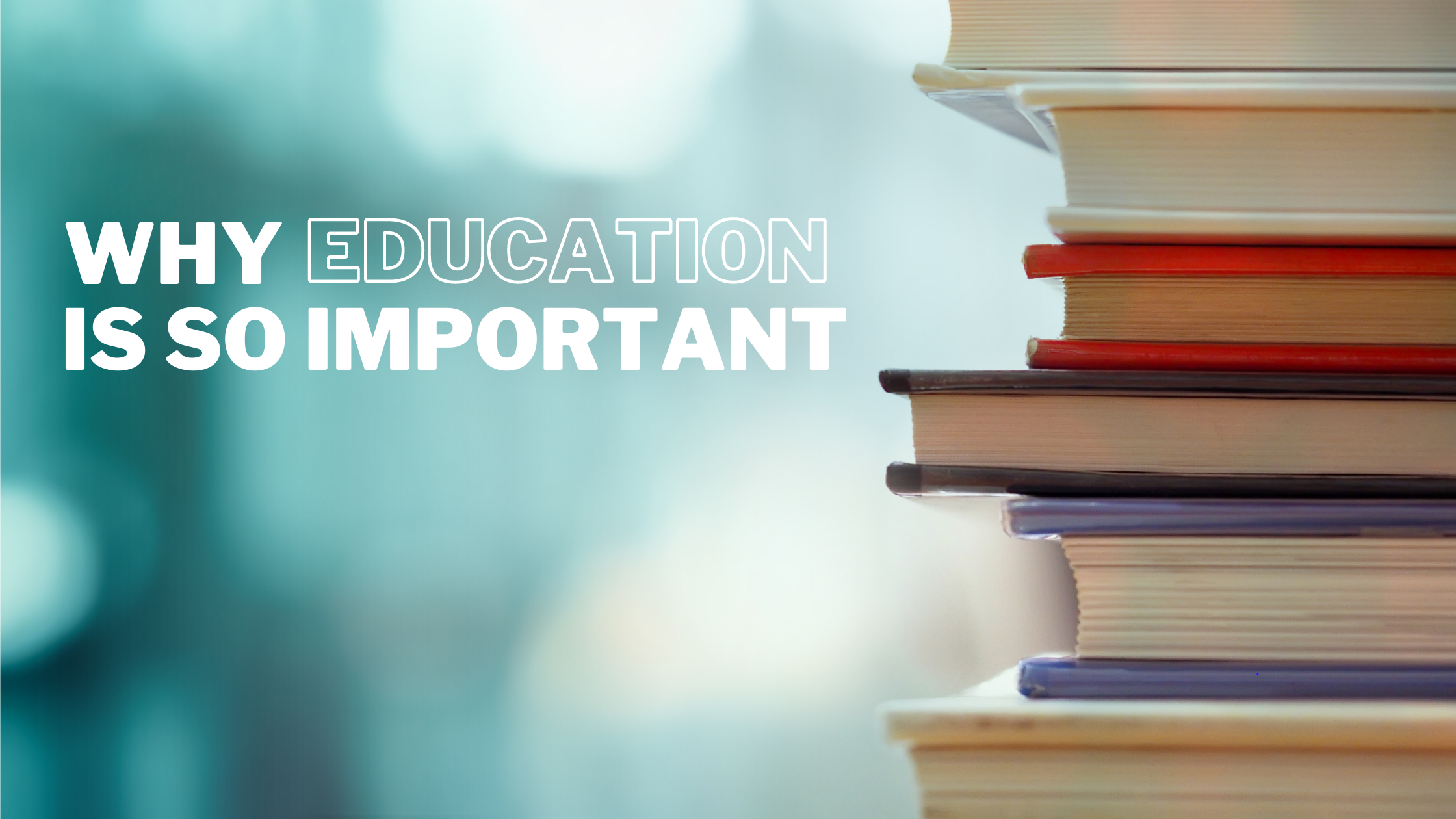
By Geneva College Staff
Knowledge is power. And, although education is not the only means to attaining knowledge, it is a formidable tool that can be used in the gathering of knowledge.
Education cultivates and informs your perspectives on many issues, helping you to interpret the world around you, build opinions and enable the formation of your particular viewpoints. Education is an impressive tool that can be used to initiate social change, promote economic development and increase prosperity.
“Education is a powerful weapon that you can use to change the world.” - Nelson Mandela
Education is more than going to your classes and doing the work necessary to get a passing grade—it’s about preparing for life! So, use this time wisely and work hard to take advantage of all the benefits a good education has to offer.
Top Advantages of Pursuing an Education
Many advantages go hand in hand with the pursuit of an education, but it’s up to you to use the educational opportunities you choose to pursue in order to best see its benefits. Let’s look at these advantages now.
Education Provides Better Employment Opportunities
Having greater employment options is one of the biggest reasons many people choose to pursue an education. In fact, an education, both college and in trade, provides numerous employment options to those who pursue it. Individuals who study, learn professional skills and dedicate themselves to becoming an expert are typically rewarded with increased salaries, making them more economically secure than those who remain uneducated.
Education is Empowering
One of the benefits of getting an education is having instructors. Why? Because someone else is involved. Instructors help you to develop your abilities and, thereby, reach your potential. They push, motivate, encourage and challenge you to do more, helping you to reach higher and achieve more than you may have otherwise been able to accomplish on your own. That’s empowering. You’re better equipped to live independently, trusting your instincts and knowing you’ve developed the ability to make logical and reasonable decisions.
Education Teaches Responsibility
As you pursue your education, there are times when you must decide that it’s more important to study and work on your coursework and class projects instead of doing other things that are a whole lot more fun. You learn to make sacrifices in the now for the gains you’ll experience in the future. You learn to take responsibility for your actions and to do the necessary work required to pass your classes. The responsibility developed while pursuing an education is an asset that will serve you well in many different capacities in the future.
Education Teaches Discipline
Just as education teaches responsibility, it also builds discipline. After all, if you don’t take the required actions necessary to pass a class, you’ll suffer the consequences. Situations such as this prepare you for a world where missing deadlines has real consequences and costs. The supportive environment of an educational institution is the perfect place to learn how to be a disciplined individual. Discipline is a valuable and highly prized skill that will serve you well throughout your life.
Education Provides Experience
As is the case for many young people, going to college may be the first time you’ve lived independently, separate from your parents. It may be the first time you are exposed to a more widely diverse group of peers. With these new experiences, you may become aware of totally new points of view and learn to appreciate the benefits of diversity in others. Your encounters with new groups of people and the situations you experience along the way provide a more developed understanding of the world around you and the events that are taking place in it. The situations and people you meet enable you to build and reinforce your reputation and social image.
Education Develops Social Skills
While attending college, you’re exposed to a much more diverse group of people and their cultures than if you had remained in the comfort of your home (or your hometown) where you were always surrounded by the same group of family and friends. As you go to class, attend meetings and enjoy social gatherings, you’ll have the opportunity to interact with people who are different than your normal circle of friends, which will help you develop social skills. These ‘soft” people skills will assist you throughout your life and career. Embrace this opportunity and develop the skills you can use to interact with people from all walks of life.
Opportunities to Develop Friendships
As you pursue your education, you’ll discover lots of new and exciting people along the way. You’ll encounter new potential “friends” in your lectures and classes, sometimes working in pairs and within groups to complete assignments and accomplish tasks, both in and out of the classroom. You share a common interest with them (your course of study) and you’ll be sharing large amounts of time with them in and out of the classroom. Why not take the time to get to know them better? You just might develop friendships that will last a lifetime.
Embrace These Benefits
As you can see, there are many benefits to having an education, and there’s no better time to embrace these benefits than when you’re young and aren’t yet weighed down with other responsibilities that make it harder to get an education, like working a fulltime job or starting a family. That being said, there’s no better time than now, no matter what your age, to acquire an education. In fact, becoming a lifelong learner—giving your brain a regular workout—provides some amazing benefits , including improved mental health, greater memory function, lowered stress levels, more happiness and increased earning potential.
Opinions expressed in the Geneva Blog are those of its contributors and do not necessarily represent the opinions or official position of the College. The Geneva Blog is a place for faculty and contributing writers to express points of view, academic insights, and contribute to national conversations to spark thought, conversation, and the pursuit of truth, in line with our philosophy as a Christian, liberal arts institution.
- Higher Education
Higher Education Related Blog Posts
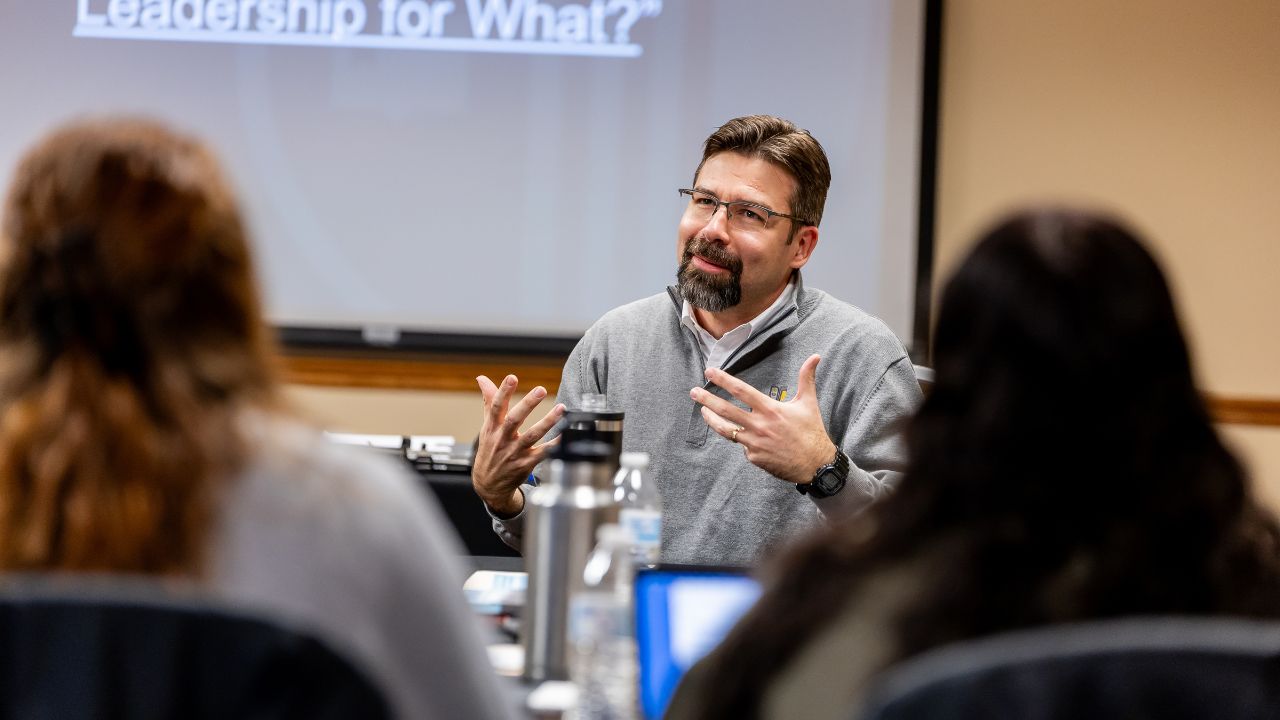
Master of Arts in Higher Education Program Spotlight
Are you interested in earning a Master of Arts in Higher Education? Read here to learn about the program that Geneva offers!
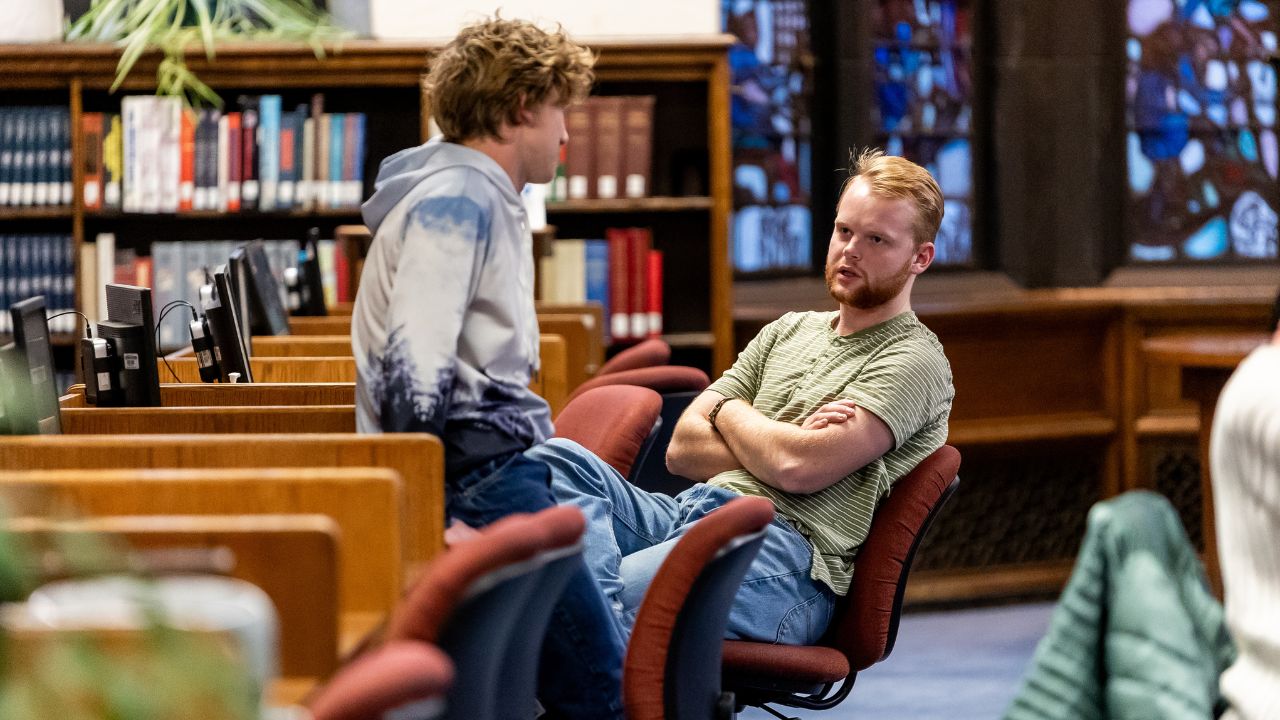
Geneva Core Curriculum
Have you ever wondered what Geneva's Core Curriculum consists of? Read here to find out!
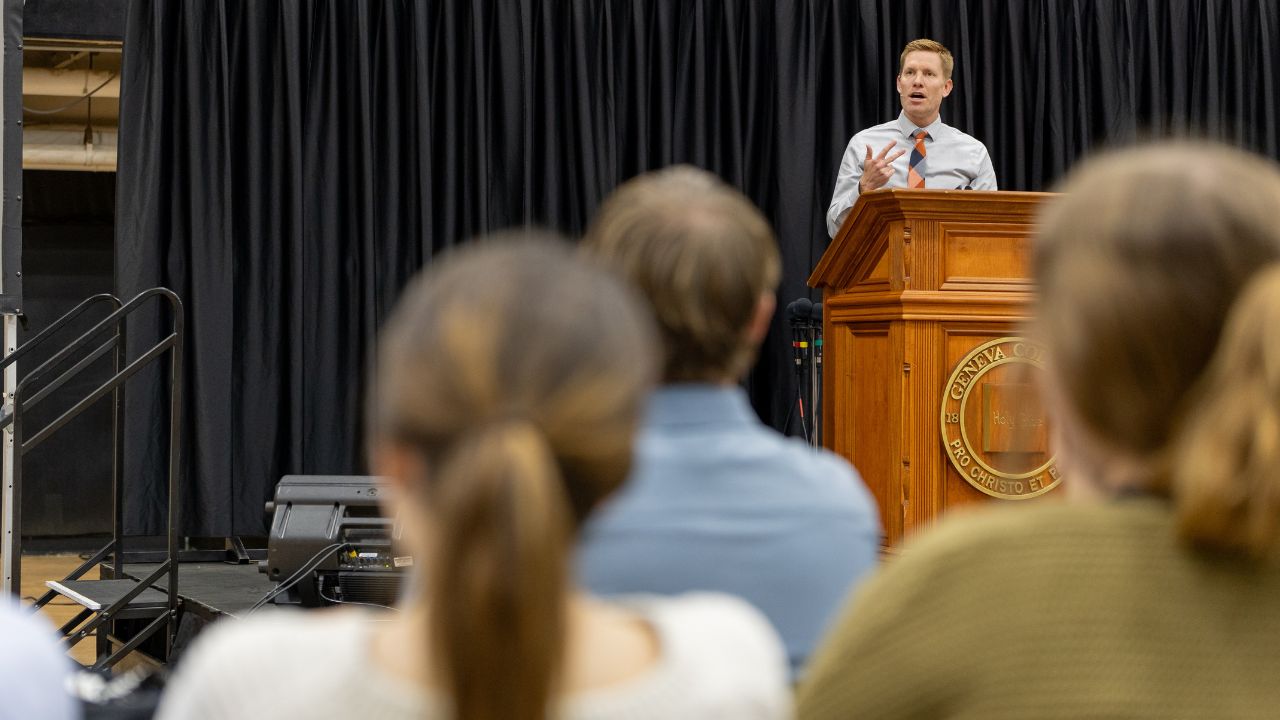
What is a Bible College vs. a Christian College?
What is a Bible College? Is Geneva a Bible College? Should I go to a Bible College? The first two questions will be answered here, and hopefully you might gain some clarity about the third.
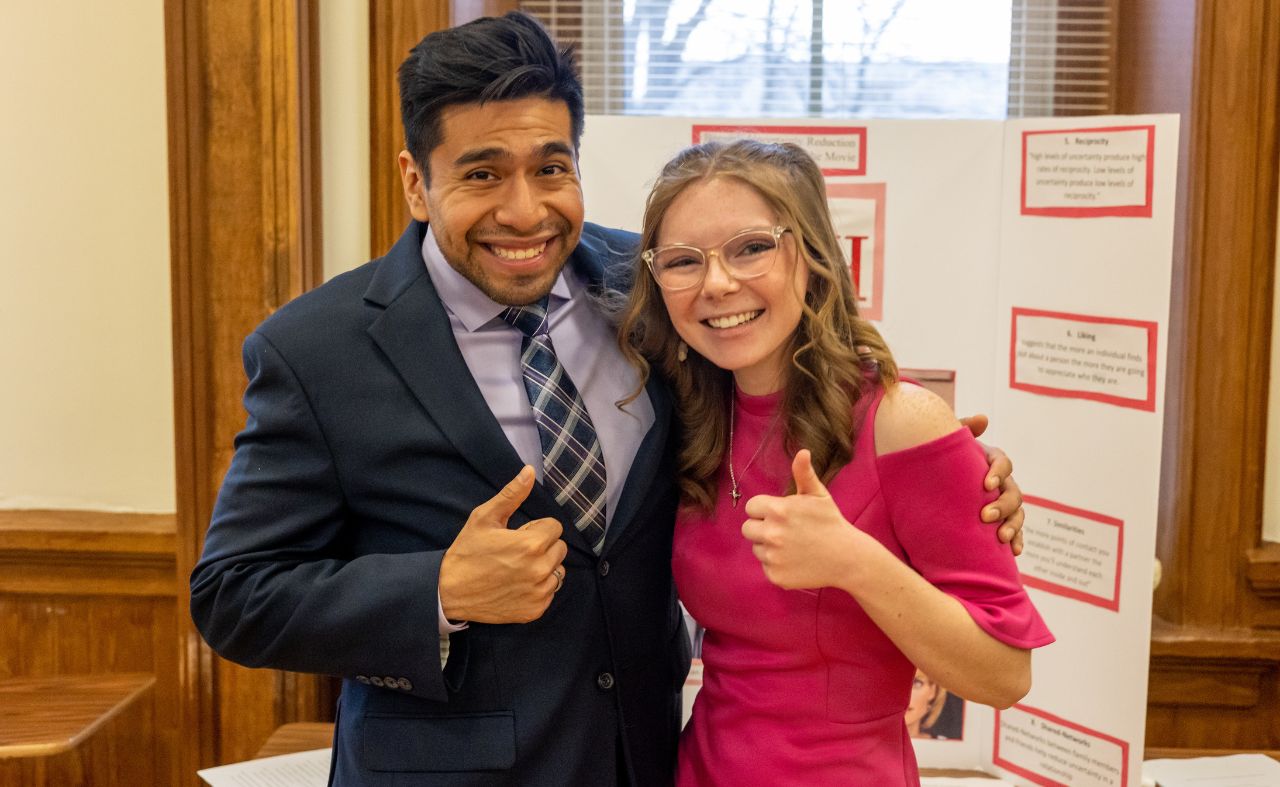
How the Study of Business Interacts with a Christian Worldview
One might argue that there’s no room for a Christian perspective within a business, but that couldn’t be farther from the truth.
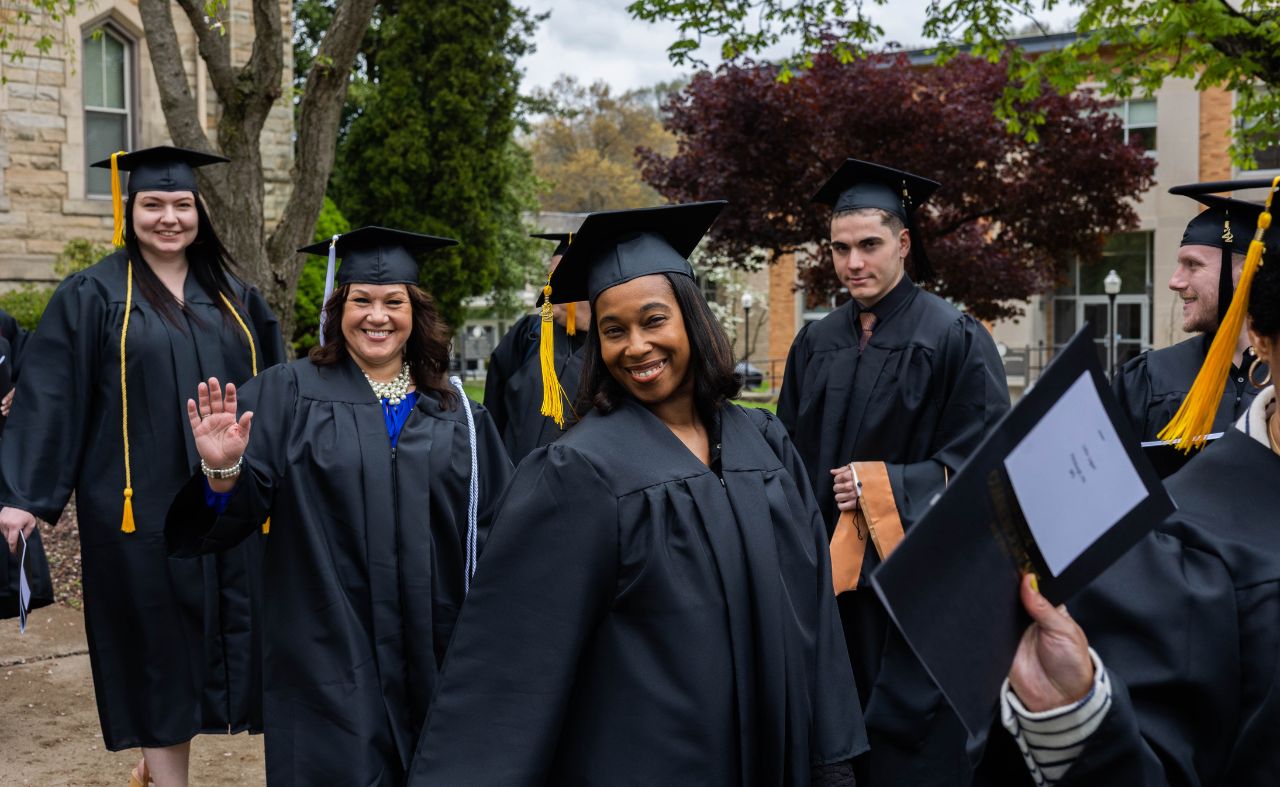
What To Do With A Business Degree
Students that study business will graduate with an abundance of marketable skills and an overwhelming variety of career options ahead of them. Read more to learn about possible career paths for business majors.
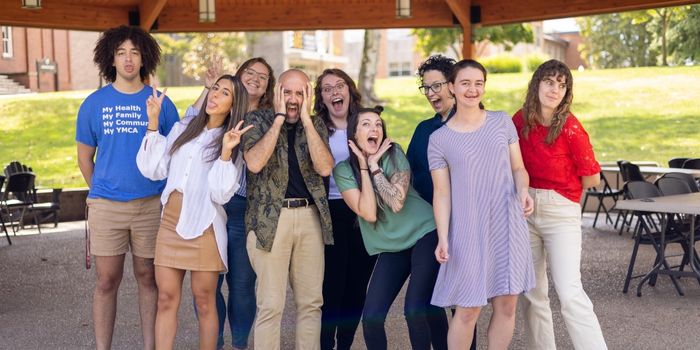
Why Get a Master's in Counseling?
Are you considering pursuing a master’s in counseling? Here are some reasons why getting a master’s in counseling might be right for you.
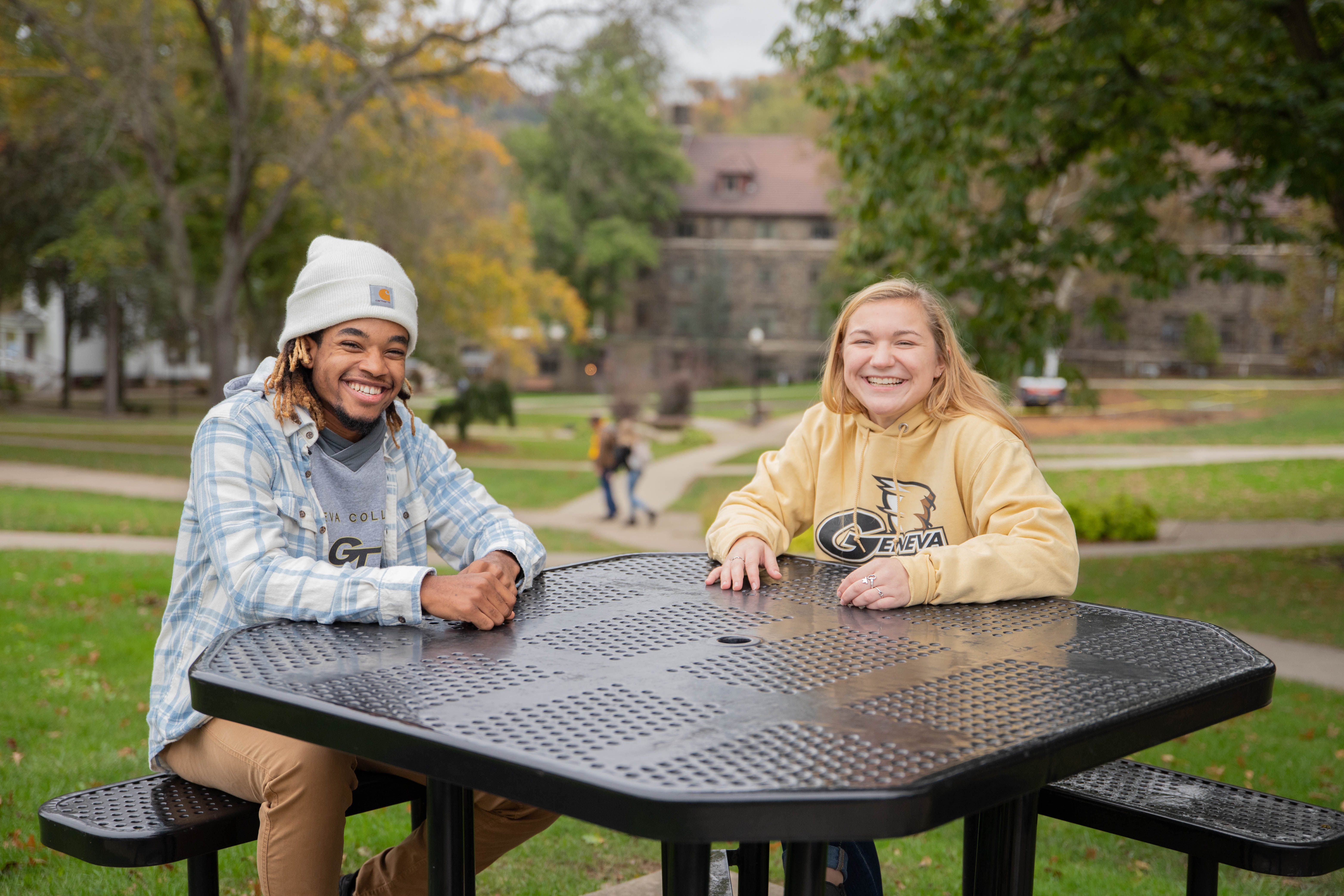
Benefits of L&T Class
Learning and Transition (L&T) is a unique course at Geneva required by all incoming students. But why is it required?
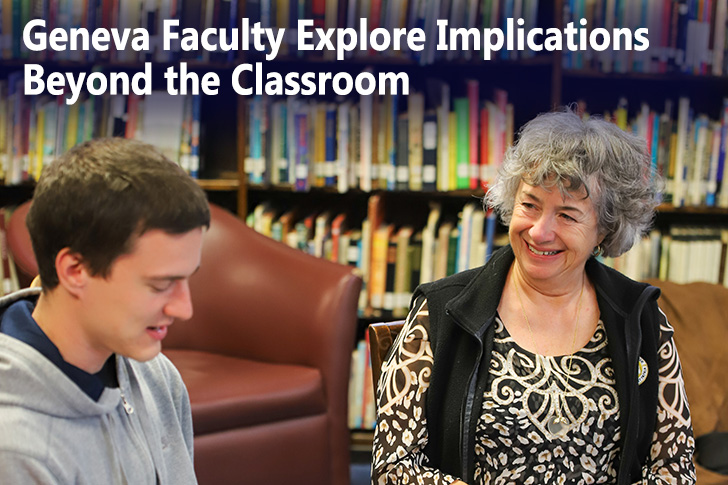
Geneva Faculty Explore Implications Beyond the Classroom
Geneva College faculty members understand and effectively teach their disciplines with academic excellence in combination with a consistent biblical worldview. In addition to serving students on campus, Geneva professors approach the larger world as thought leaders in the integration of faith and learning. Here are some recent examples.
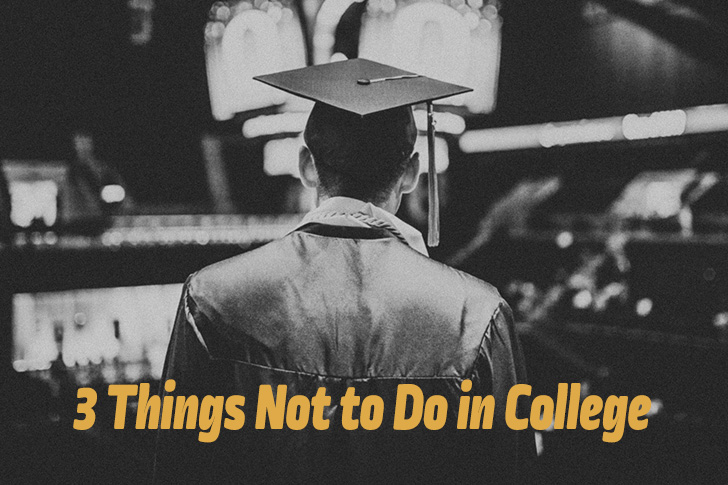
Three Things Not to Do in College
I am here to tell you that you do not need to be a superhuman to get through college. To survive and thrive all four years of your time in college, or however long it takes, here are some things NOT to do while in college.

Great Reasons to Be a Writing Major
Writing is one of the best choices as a college major because of the flexibility it gives you in so many different jobs and in your overall vocation. With a writing major, you can be a journalist, teacher, work in any number of public relations offices, write as a freelancer, become a blogger and have a skill that's useful in many other ways.
Request Information
Learn more about Geneva College.
Have questions? Call us at 724-847-6505 .
Receive information about our quality academic programs.
Tell me more, general information.
- About Geneva
- Foundational Concepts
- Nondiscrimination Policy
- Attribution
Degree Programs
- Graduate Programs
- Online Degree Programs (ODP)
- Find Your Program
- Academic Departments
- Center for Calling and Career
- Student Success Center
- Emergency Information
ALUMNI & FRIENDS
- Alumni Relations
- Alumni Class Notes
- Alumni Events

© Geneva College | All rights reserved

- August 22, 2022
- Education Advice , Uncategorized
Why Education Is Important in Our Life
UOTP Marketing

We all hear the word “education” in our daily life. Our education begins at home when we are taught how to act, what to eat, what to wear, and many other life skills. Therefore, we receive our early education from our parents and then attend elementary school , where we are instructed in various subjects, manners, and what is and is not appropriate behavior.
At this point, you may be asking yourself why education is important. Well, we receive education in a variety of ways throughout our entire lives, and an uneducated society does not have a future in this world. So let’s get started immediately. The University of the Potomac has compiled a list of 16 reasons why education is crucial to assist you with its significance.
What Is Education?
So what exactly is education? Education is a complex concept with a wide range of definitions. Still, to put it simply, education is a powerful tool that educates people about their obligations to their families, friends, and most importantly, society.
There are three types of education : formal, informal, and non-formal. Formal education usually occurs in classrooms where students learn academic or trade skills. Informal education occurs daily in our homes by our parents teaching us manners, how to prepare a meal, ride a bike, and so on. Non-formal education takes place outside the classroom, allowing anyone to obtain fundamental knowledge and practical skills.
Education improves people’s lives by motivating them to fight against specific issues, including violence, injustice, corruption, and much more. Another way to illustrate the value of education is to point out the several governments that make significant financial investments in it.
They do this so that their country can advance and so that they can have a promising future since a well-educated person is a precious resource for the state.
16 Reasons Why Education Is Important
The impact of education on every corner of the world is unremarkable. Growth and development are what we want and what we can achieve with education by our side. Further, educated individuals will follow their families’ steps and educate their children on different aspects of life. Below, we have mentioned 16 reasons why education is essential. Let’s start with problem-solving skills.
Develops problem-solving skills

The most significant benefit of education is the improvement of our problem-solving abilities. We encounter various issues every day, and we typically approach their solution logically. Compared to someone without prior education, an educated individual will handle the circumstance easily. Since problem-solving abilities are necessary for employment, it’s a win-win situation for you to have your desired career and further add more skills.

Promotes gender equality
Gender equality is still a topic of discussion today. Women didn’t use to be able to attend a school or receive an education. Unfortunately, we can’t say this is no longer an issue because a few isolated instances indicate it still occurs. Education encourages gender equality; thus, a society that values education would also value gender equality. People with education, especially educated women, will fight to advance gender equality for the women who lack a voice through education.
Provides self-dependency
Self-dependency is taught by our parents first. That’s one of the most critical skills that everyone should possess. Education provides just that, whether that occurs in our homes, schools, or even streets. You have a voice; thus, you need to be able to act and talk for yourself and, most importantly, be independent.
Provides stability and financial security

Stability in our lives is a result of education. You have to work for your job goals; education is the best way to achieve that. By doing so, you will have stability and won’t be concerned that you won’t have a job. On the other hand, education also has the advantage of ensuring financial security. Higher qualified people acquire the dream career they’ve wanted since they were young. So, with education, your future is secured.
Contributes to economic growth
Governments invest a lot of money in education so that their people can get an education and contribute to developing their nation’s economy. A nation’s GDP is based on the number of employed citizens, and since most jobs require a bachelor’s or master’s degree , education helps the economy thrive. You benefit your society and your country by educating yourself, your kids, and others as every state aspires to an educated society in the future.
It’s a way to give back to the community
Educated individuals always find ways to give back to the community, whether by investing in colleges so other students can educate themselves or by investing in the education system. Someone gave back to the community so you can be educated, and it’s your turn to do the same.
Creates more employment opportunities

Nowadays, obtaining a job is very hard. Education in your resume opens a door full of opportunities for you. Unfortunately, the lower your education, the lower the number of employment opportunities. In addition, your salary might not be as high as expected if you have a lesser education level. However, you will get that job position you have dreamed of if you have strong credentials and a solid educational foundation.
Interested in pursuing a degree?
Fill out the form and get all admission information you need regarding your chosen program.
This will only take a moment.
Message Received!
Thank you for reaching out to us. we will review your message and get right back to you within 24 hours. if there is an urgent matter and you need to speak to someone immediately you can call at the following phone number:.
By clicking the Send me more information button above, I represent that I am 18+ years of age, that I have read and agreed to the Terms & Conditions and Privacy Policy , and agree to receive email marketing and phone calls from UOTP. I understand that my consent is not required to apply for online degree enrollment. To speak with a representative without providing consent, please call +1 (202) 274-2300
- We value your privacy.
Helps to get to know yourself
You come to know yourself better when you have education on your side. You learn more about your qualifications, your shortcomings, and what you want out of life. Your critical thinking and creativity continue to grow, which aids in your understanding of who you are as a person and what kind of person you want to be in the future.
Teaches values
Values as a word can be used in different scenarios, whether valuing your family, nation, friends, loved ones, and most importantly, yourself. Education can help you accomplish that by teaching you how to become more responsible and sensible, which leads to developing a solid relationship with those around you.
Develops critical thinking
Education helps in different ways, especially in developing critical thinking. By developing critical thinking, you will see that there is more than what meets the eye. You learn how to express your thoughts as well as ideas better. You tend to analyze the situation before saying or acting as a response as a result of education in your life.
Breaks barriers
By educating yourself, you dismantle the obstacles to education and ensure that other students have access to the chance to use education to better their lives and the community’s life. Educate yourself so that you can educate others and break the glaciers by changing the future of education for the better.
Develops life skills
Life skills are needed everywhere you go in life (trips, job interviews, etc.) and are also learned in all sets of circumstances. Education is a factor in developing life skills as everything you learn in school, on the job, or in the community helps you get through life and increases your chances of success.
Helps fulfill your dreams
Education can help you achieve your goals. By getting a job and working, you can support yourself and live the life you’ve always wanted. You dedicate four years of your life to earning a degree, and the realization of your dreams results from your hard work, persistence, and ambition. And education is where it all begins.
Allows for creativity

Education supports innovative people with many good ideas, and it allows room for creativity. Creativity can look different depending on the field you focus on, whether business, fashion, architecture, or other.
Builds confidence
Through every step of the way, education helps you build confidence. You can discuss a topic without fear of what others may think or say. You will speak of what you consider suitable and not be afraid of judgment. So, education is the way to go to build your confidence.
Offers freedom
We’ve all thought of freedom at least once in our lives. You might ask, though, how education can promote independence. The key to freedom is education, which gives us all the required knowledge. If you are educated, you will accomplish everything with much greater confidence and carry a set of creativity, critical thinking, and problem-solving skills with you wherever you go.
Whenever we hear the word education, we instantly think of hope. It offers you and your future family a significantly better future. We should encourage people to further their education to benefit themselves, their families, and their community. Now that you’ve learned 16 reasons why education is important, seize the opportunity !
Share it with your friends!
Explore more.

Accounting vs. Finance Degree: Which Major to Choose?

12 Important Bookkeeping Skills You Need for a Successful Career
Recent resources.

Associate’s vs. Bachelor’s: Which One To Choose?

Web Designer vs. Web Developer: What’s the Difference?
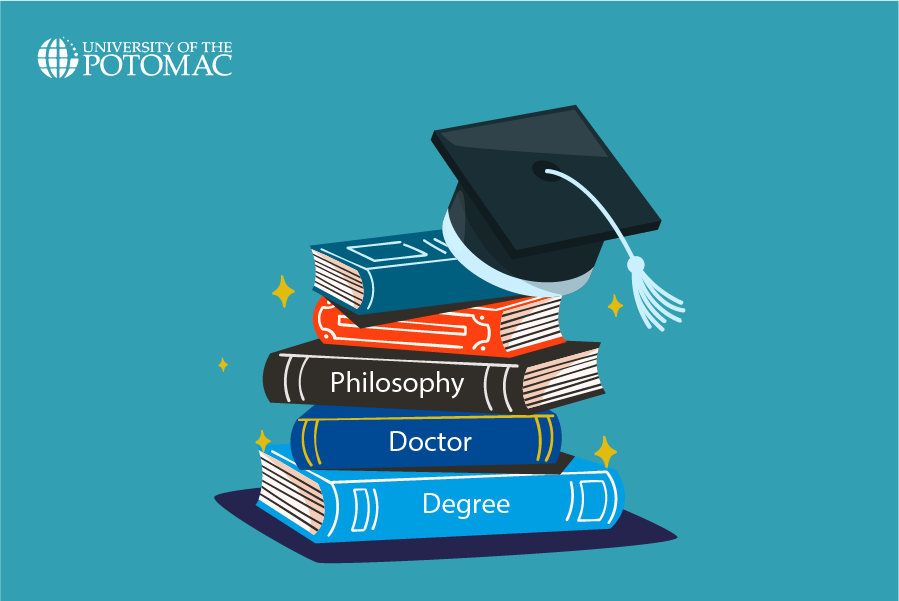
What Does Ph.D. Stand For?

What Is Scope In Project Management?
INTERESTED IN LEARNING MORE?
Chat with an Admissions Officer Now!

- Associates Degree
- Bachelors Degrees
- Masters Degrees
- Doctoral Degrees
- Faculty & Staff
- Accreditation
- Student Experience
QUICK LINKS
- Admission Requirements
- Military Students
- Financial Aid
Request More Information

10 Benefits Showing Why Education Is Important to Our Society

Do you think attending school and doing projects for your college is a waste of time? If you do, you might want to reconsider that claim as education is a key part of a society’s growth and progress. When people are educated, they can significantly contribute to their families and society in various aspects and fields, thus creating a stable and stimulating community. Why is education important to society? Let’s take into account some reasons.
1. Creating More Employment Opportunities
Finding a job is not easy, especially in times of economic turmoil. You often need to compete with hundreds of other candidates for a vacant position. In addition, the lower the education level, the greater the number of people applying for the same low-paying entry-level post. However, with the right qualifications and educational background, you will increase your chances of landing a fulfilling job. Would you like to find a way to stand out from a pool of applicants? Learn, educate yourself, graduate and get as many qualifications, skills, knowledge, and experience as possible.
2. Securing a Higher Income
People with higher education and varied experience are more likely to get high-paying , expert jobs. Study hard, dedicate your time and effort to acquire knowledge and reach a high level of competence if you would like to lead a comfortable lifestyle. Your credentials are what will motivate a potential employer to choose you instead of another candidate. Studying hard throughout your school and studies shows you are not afraid of hard work and are able to fulfill your goals. Employers see this as a huge advantage as they all prefer a responsible and knowledgeable workforce. Once you graduate, you can start searching for jobs that will give you the opportunity to practice what you have learned and, at the same time, secure sufficient pay for your needs.
3. Developing Problem-solving Skills
One of the benefits of education is that the educational system teaches us how to obtain and develop critical and logical thinking and make independent decisions. When children become adults, they are faced with a lot of challenging issues – pay off your student loans, get a job, buy a car and a house, provide for your family, etc. However, if one has spent years educating themselves, they should be able to make sound decisions on these various quandaries. Not only are people able to form their own opinions, but they are also good at finding solid and reliable arguments and evidence to back up and confirm their decisions.
4. Improving the Economy

People with good academic and educational backgrounds tend to get well-paid jobs. The higher their education and accomplishments, the better employment options they get. People who grew up poor but educated themselves have high chances to transform their lives, thus contributing to a decrease in society’s poverty rates. Education helps countries grow economically since it is about getting knowledge and being able to apply it wisely to our lives and, at the same time, improving other people’s lives.
5. Providing a Prosperous and Happy Life
Education has always secured respect from society. In order to ensure a comfortable lifestyle, people should educate themselves and obtain a well-paid job to be successful and satisfied. It helps gain a better reputation and increases the chances of climbing the career ladder more easily and faster. In turn, it provides financial resources for stable lives – people can afford to buy their own house or apartment and thus secure their children’s happiness and success. Furthermore, being able to own your own home provides stability and increases self-confidence. It leads to creating a positive environment for families and communities. “Children of homeowners are 116% more likely to graduate from college than children of renters of the same age, race, and income. They are also 25% more likely to graduate from high school and have higher math and reading scores, with fewer behavioral problems,” according to research at the University of Tennessee.
6. Giving Back to the Community
How does education benefit society? Educated people understand how valuable it is to live in a stable and secure community. They are more prone to taking part in projects that help improve not only their neighborhood but society, as well. In addition, when people are able to afford their own home, they are more likely to take part not only in improving their homes but in solving local problems , as well. After all, it is quite important to get involved and give a hand to the less fortunate ones in order to build a better place for all of us to live in.
7. Creating Modern Society
Education is of key essence for modern society. One needs to learn about culture, history and other important aspects so that they would be able to contribute to modern society. Education molds people into leaders not only with knowledge about (college) subjects, but it also shows them how to lead with emotions and true values. Educated people can easily differentiate between right and wrong, thus education helps reduce the crime rate. Bad events are happening around the world – only competent leaders can help guide us down a good and right path.
8. Bridging the Borders
Digital education helps connect with people and organizations around the world. Borders are no longer there. Being able to communicate and share opinions with people from other countries and cultures, widens horizons and helps us understand and appreciate each other.
9. Creating equal opportunities

The importance of education in society has always been great as it is irrespective of caste, race, gender, religion. Educated people are treated as equals on the basis of their knowledge and competence. In addition to this, educated people are open-minded and are able to listen and accept other people’s views regardless of the fact of how different they are. Education offers a possibility to live independently and thus be free. It is our shelter against financial storms and wrong decisions.
10. Introducing Empowerment
Education is the key to turn a weakness into a strength. It offers different tools and ways to understand problems that lay ahead of us and helps resolve them. More importantly, education provides us with considerable mental agility to make the right decisions and spring into action when needed. Many types of research show that educated women can more easily stand up against gender bias and marital violence as they have improved their decision-making capabilities.
Whether it is about respect, a higher position in society and a professional environment, financial security, family stability, education provides all of these and much more. Home stability provided by owning your own home helps children who grew up in their own houses or apartments become more successful. They are more likely to graduate high school (25%) and finish college (116%). “Education is the most powerful weapon which you can use to change the world,” as Nelson Mandela said. It helps people become better citizens, get a better-paid job, shows the difference between good and bad. Education shows us the importance of hard work and, at the same time, helps us grow and develop. Thus, we are able to shape a better society to live in by knowing and respecting rights, laws, and regulations. Learning languages through educational processes helps interact with different people in order to exchange ideas, knowledge, good practices. It teaches us to live in harmony.
Are you ready to give back? Help the families from your community that need it the most. Get involved , today.
About Habitat for Humanity of Broward
Seeking to put God’s love into action, Habitat for Humanity of Broward brings people together to build homes, communities and hope. Habitat Broward offers a “hand up” not a “hand out” to families who are unable to qualify for conventional home financing but are willing to work hard to improve their family’s lives and achieve the economic empowerment of homeownership. For more information about Habitat for Humanity of Broward please call (954) 396-3030 or visit habitatbroward.org or check us out on Facebook at www.facebook.com/HabitatBroward .
- 888 NW 62nd Street, 2nd Floor Fort Lauderdale, FL 33309
- Phone: (954) 396-3030
- Fax: (954) 570-0054
- Email: [email protected]
- Hours Monday – Friday, 9:00 AM – 5:00 PM

Cookies on GOV.UK
We use some essential cookies to make this website work.
We’d like to set additional cookies to understand how you use GOV.UK, remember your settings and improve government services.
We also use cookies set by other sites to help us deliver content from their services.
You have accepted additional cookies. You can change your cookie settings at any time.
You have rejected additional cookies. You can change your cookie settings at any time.
- Education, training and skills
- School curriculum
- Secondary curriculum, key stage 3 and key stage 4 (GCSEs)
- GCSE changes and reforms
Nick Gibb: what is a good education in the 21st century?
Schools Minister Nick Gibb explains the importance of a core academic curriculum and the value of excellent teachers.

Can I start by saying thank you for inviting me to come and speak to you today. It is a great pleasure to be back at my old college.
One thing that I miss enormously from my undergraduate days is the time to think, and the time to read. Ministerial duties permitting, I still try to carve out spare hours to enjoy a good book. Ever since becoming Schools Minister, I have been particularly entertained by passages in novels which address English schools.
Zadie Smith’s wonderful account of life in modern London, ‘NW’, features the protagonist Natalie Blake - an upwardly mobile Londoner who goes from her inner-city school to university, and then on to a successful career as a lawyer. Whilst seeking out a primary school for her son, she visits a medieval parish church which has been engulfed in the urban sprawl of north-west London.
A dedicated autodictat, we are treated to Natalie Blake’s stream of consciousness as she picks up and reads a leaflet in the church: “…present church dates from around 1315 … Cromwellian bullet holes in the door…”.
Natalie’s reading continues: “… the famous shrine of Our Lady of Willesden, ‘The Black Madonna’, destroyed in the Reformation and burnt, along with the ladies of Walsingham, Ipswich and Worcester - by the Lord Privy Seal. Also a Cromwell. Different Cromwell. Doesn’t say. This is where decent history GCSE -level teaching would have come in helpful…”.
On reading that passage, I wondered whether Natalie’s life is irretrievably held back by her inability to distinguish between Oliver and Thomas Cromwell? Perhaps not. But the situation described in this passage of the novel is indicative of a broader phenomenon: that the recipient of a core academic curriculum leaves school with an intellectual hinterland, which allows them to make sense of the world around them.
Since coming into government in 2010, our reforms to the A levels , GCSEs , and the national curriculum have focused on bringing a new level of academic rigour to English state schooling. And central to this mission has been elevating knowledge to become a central component of a good school education.
Had Natalie studied for the new reformed history GCSE , due to be taught from September 2016, she would have stood a better chance of knowing about both Oliver and Thomas Cromwell, thus having the knowledge to understand the historical significance of her parish church.
‘Knowledge’, I hear people gasp. ‘Surely education is about so much more than that. It is about creativity, problem solving, thinking critically, and inventing?’.
Yes, I agree whole-heartedly that a good education is about all those things. But each of them is dependent upon, and impossible without, a fundamental basis of knowledge about the subject in question. Put simply, a commitment to social justice requires us to place knowledge at the heart of our education system. And this is not a statement of opinion – it is a fact established by decades of research by cognitive scientists, as I shall soon explain.
It is an unfortunate fact, however, that many modern conceptions of education either ignore the importance of knowledge, or actively deride it. During the 1960s, it became fashionable amongst educationists to dismiss the accumulation of knowledge as a joyless anachronism: rote learning of unconnected facts, inflicted upon bored and unwilling pupils. School curricula were increasingly rewritten to focus not upon subject content, but upon skills and dispositions.
History became less about mastering the understanding of a period, and more about analysing primary sources. Foreign languages teaching moved away from learning grammatical structures and a wide vocabulary, and towards communication. And in maths, it was believed that memorisation of times tables and basic arithmetic at an early age could be bypassed by learning through real-life mathematical problems.
This philosophy endured and strengthened over the next half century, and had a marked effect on the quality of education that generations of children have received in Britain. For me, the crowning glory of this dumbing down was the 2007 rewrite of the national curriculum, which systematically expunged any mention of subject content, replacing it with references to ‘processes’, ‘concepts’, and with an overlay of ‘personal, learning and thinking skills’ such as ‘independent learning’ and ‘learning to learn’.
As Schools Minister, I have visited around 400 schools, watched thousands of classes, and seen countless examples of this philosophy in action. It always saddens me to see thrilling content of education, be it timeless literature, scientific wonders, or great historical events, being relegated to a backseat, so that these comparatively joyless ‘skills’ and ‘processes’ can come to the fore.
Now, I am sure that many here may be thinking back to their own recent education, and contending that you studied a core, subject-based academic curriculum at school. If that is the case, you should feel fortunate that you were part of a minority.
On entering government in 2010, we were concerned that nationwide only 31% of pupils were taking a GCSE in history. Only 26% of pupils were taking a GCSE in geography. Worse still, only 43% of pupils were studying a GCSE in a foreign language, down from 76% in 2000.
We saw that the majority of English pupils were not studying a combination of academic subjects which - up to the age of 16 - would be seen as entirely standard at most independent schools, and indeed in many foreign countries.
And even for those who did enter GCSEs in academic subjects, the examination content had been so watered down that it no longer represented a mastery of any given subject. A history GCSE could consist entirely of 20th-century topics; a religious studies GCSE could consist of just 1 religion, or very little religion at all; and around 90% of pupils entering the English literature GCSE delivered by 1 exam board answered questions on a single text: ‘Of Mice and Men’. Now, John Steinbeck is a great author - ‘East of Eden’ is my all-time favourite novel - but even I doubt this short novella was deserving of such overwhelming attention.
In addition, grade inflation had been allowed to diminish the value of our qualifications. From 2005 to 2010, the proportion of pupils achieving 5 good GCSEs increased year on year. But as Professor Robert Coe of this university showed, English pupils’ performance in international assessments and annual benchmarked aptitude tests showed no improvement at all.
This was the state of English education that we inherited on coming into government in 2010. Since then, our reforms have focused on raising the ambition of what pupils are expected to study at school, and putting subject content - which I believe to be the real joy of education - at the core of school life.
We have removed over 3,000 low-value qualifications from performance tables and introduced rigorous new standards for the technical and professional qualifications that remain.
We introduced the English Baccalaureate ( EBacc ) measure in 2010, which shows the proportion of pupils in a school being entered for a combination of GCSEs in English, mathematics, 2 sciences, history or geography, and a foreign language. Schools have risen to this challenge: the proportion of pupils entering this EBacc combination of subjects nationwide has risen from 23% in 2012 to 39% in 2015.
And due to a long process of examination reform which is only just coming to fruition, the examinations that children are taking are becoming more academically ambitious, not less. Since September, pupils have been studying the reformed English literature GCSE for the first time, including the study of both a 19th-century novel and a modern text. Instead of a strict diet of Steinbeck, pupils can read George Orwell and Jane Austen, Kazuo Ishiguro and Charlotte Bronte - and they will be reading the whole novel, not just extracts.
From September, the new history GCSE will be studied, which will supplement 20th-century global history with British depth studies, from the reign of King Edward I to the English Civil War and Restoration.
Our curriculum reforms also look to the future, as the school curriculum must adapt to incorporate the breakthroughs of the technological age. That is why we have introduced a new national curriculum for computing, which focuses on programming languages, computational thinking, and Boolean logic - making this country, I believe, the first in the G20 to do so. The old IT curriculum simply taught children to use programmes such as Microsoft Word: now, pupils are learning to code and create programmes for themselves.
This culture of increasing academic ambition is having a beneficial knock on effect for A level studies, where since 2010 there has been a 27% increase in pupil entries for further maths, a 15% increase in pupil entries for physics, and a 15% increase in pupil entries for chemistry.
Non- STEM (science, technology, engineering and mathematics) subjects are seeing similar increases at A level . Economics, up 29%. Religious studies, up 19%. Spanish and geography, both up 16%. Whilst for years, comments about ‘the youth of today’ have implied decline and disappointment, today’s youngsters will be better educated and better informed about the world than the generations preceding them.
In England, it has always been possible to secure a good education, through top comprehensive schools, grammar schools or independent schools. But it is socially disadvantaged pupils who have historically missed out, and found their life chances limited by the quality of education they received. Research by the Sutton Trust in 2014 showed that pupils eligible for free school meals who scored in the top 10% nationally at the end of primary school were significantly less likely to be entered for the EBacc than their wealthier peers who achieved the same level aged 11. Disadvantaged pupils - the very children most in need of an academic, knowledge-based curriculum - were the least likely to be given the opportunity to benefit from it.
It is the driving ambition for this government that a core academic curriculum should not be the preserve of a social elite, but instead the entitlement of every single child. Though there are some inequalities which schools cannot address, the unequal distribution of intellectual and cultural capital is one that they can.
But there remain many working within education who would challenge my assumption that a core academic curriculum is a valuable inheritance for all pupils. Such figures think it superfluous to know, for example, Oliver Cromwell from Thomas. I am sure many here will have seen the Royal Society of Arts talk by the educationist Sir Ken Robinson, now pushing 14 million views on YouTube. In his talk, he accuses the traditional, academic curriculum of being a relic of the 19th century, a ‘factory model’ of schooling, which squanders pupil creativity.
As his enormous popularity shows, Sir Ken Robinson’s views are superficially appealing. But I believe them to be profoundly wrong.
An educationist who has shaped my thinking on this more than any other is Daniel Willingham, professor of cognitive science at the University of Virginia. With reference to robust scientific evidence, he explains how the ‘thinking skills’ most prized by schools and employers - problem solving, creativity, inventiveness - are dependent upon considerable background knowledge.
You may suppose that ‘thinking scientifically’ is a discrete skill, that when learnt can be applied to any new context, but this is not the case.
To give one of the many examples that Professor Willingham cites, in one experiment, eighth-grade pupils in America were given 2 tasks. In 1, they had to manipulate a computer simulation to keep imaginary creatures alive. In another, the pupils had to evaluate how the surface area of swimming pools was related to the cooling rate of its water.
Students were consistently better at thinking scientifically on the first problem, rather than the second - something that the researchers attributed to pupils’ greater familiarity with the relevant variables. In general, American eighth-graders are better informed about health and survival, compared to volume, surface area and cooling rates.
And it is a well-known principle that great inventions are made, not through a moment of pure inspiration, but through analogical thinking. The ‘eureka moment’ of any great invention occurs when existing knowledge is brought to bear in new contexts: the novel application of what is already known.
Alexander Graham Bell’s first diagrams for the telephone made explicit reference to the biological structure of the human ear. George de Mestral invented Velcro through looking at the tiny hooks of the cockle-burs which stuck to his dog’s fur when he was hunting in the Alps.
This insight, that complex thinking depends upon background knowledge, can be applied to any subject of study.
It underlies our recent announcement that all pupils will be tested on their multiplication tables at the end of year 6, an announcement which was strongly opposed by the General Secretary of the National Union of Teachers. She expressed the classic anti-knowledge view, suggesting that number recall is not necessary for understanding mathematical concepts, and arguing that children today can always look up their times tables on their mobile phones.
Such a position is called into question by 5 decades of research by cognitive psychologists, which shows that pupils and adults who are able to solve complex mathematical problems, also have strong recall of their times tables and basic arithmetic. This should not come as a surprise - it is far easier to simplify the ratio 21:63 when you instantly recognise that both numbers are divisible by seven.
In 2013, a controlled trial was carried out where 195 first grade pupils in America who were struggling with mathematics were given 16 weeks of specific tutoring where they practiced their number knowledge. The pupils were then tested on areas such as word problems, simple arithmetic and 2-digit calculations. Compared to the control group who received no such tutoring, these pupils had a statistically signification improvement in all 4 areas tested.
Number knowledge tutoring does improve maths ability and the repeated practice of simple arithmetic helps pupils to solve more complex mathematical problems. Yet some educationists still insist that such practices are old-fashioned and unpleasant for pupils, and impoverish the education that our pupils receive. Little better exemplifies the unwitting cruelty of good intentions.
The anti-knowledge - and, I would argue, anti-evidence - position in education debates has, in recent years, been bolstered by the advent of the internet. One well known educationist shot to fame a few years ago with a popular TED talk, extolling the ability of pupils to learn independently from the internet. He asked in his talk: ‘if there’s stuff on Google, why would you need to stuff it into your head?’, and added ‘I decided that groups of children can navigate the internet to achieve educational objectives on their own.’
However, according to research from academics such as Professor Hattie, web-based education has so far been a great disappointment in raising education standards. This is backed up by international evidence from the OECD which shows that increased internet use in schools does not lead to higher academic outcomes. The 5 countries where pupils spend the least time using the internet in school - Poland, Japan, Hong Kong, Shanghai and South Korea - are all amongst the world’s highest achieving jurisdictions in international tests.
Now, I am a great supporter of the intelligent use of computers in schools, but it is mistaken to believe you can outsource your memory to Google and still expect to think well. Say, for example, you are reading an article about nuclear energy, and come across an unfamiliar term: radiation. So you Google it. But the first paragraph on the Wikipedia article mentions another unfamiliar term: particles. So you look it up, but the definition for ‘particles’ uses another unfamiliar term: ‘subatomic’. The definition of which in turn contains the unfamiliar terms ‘electrons’, ‘photons’ and ‘neutrons’, and so on and so forth in an infinite series of google searches which take the reader further and further away from the original term ‘radiation’.
It is no more possible to think fluently on a given topic with the help of the internet, than it is to talk fluently in a foreign language with the help of a bilingual dictionary.
As cognitive psychologists such as Daniel Willingham explain, the interaction between long-term and working memory is foundational to how we learn. Our working memory can only cope with between 5 and 7 new pieces of information at once. All other information must already reside within long-term memory for new information to be assimilated, or else cognitive overload is the result. This is precisely why it is so difficult for a novice to learn new information by browsing articles on the internet.
Many of us here will have a rough understanding of the structure of atoms, and the science behind radiation. We have known about it for so long, that we tend to take for granted. That, and so many other bits of factual knowledge that we draw upon in our daily life, reside in our long term memory because once, in the dim and distant past, a teacher took the time to teach it to us.
From talking to officials and teachers who have visited schools in the Far East, it is clear that countries such as China and Singapore have a pronounced pro-education culture. But I worry that in the West, we can have a tendency to disparage the importance of school. People like to quote great intellects, such as Mark Twain, who stated ‘I’ve never let my school interfere with my education’, or Albert Einstein who purportedly, but probably didn’t, say ‘education is what remains after one has forgotten what one has learned at school’. I could not disagree more strongly: a good education is transformative, and I am sure everyone in this room can think of at least one teacher who changed the direction that their life has taken.
When I defend the merits of an academic curriculum, I am often assailed with the same argument: ‘I learnt all about algebra at school’, or ‘I learnt all about atoms and radiation, and have now forgotten the lot. What use has it been?’ To that argument, I would have 2 answers.
Firstly, when knowledge recedes from instant retrieval in our memory, it still remains logged in our long-term memory.
This is shown by a cognitive principle is known as savings in relearning. Say, for example, that 15 years ago you gain an A grade in GCSE Spanish, but have forgotten it all in the intervening years. Ten years later, you find yourself working in Spain. You will have to learn Spanish again from scratch, but will it be easier second time round? Your intuition may say yes, and it would be correct.
This phenomenon has been confirmed by researchers in Japan. Japanese missionaries, who had spent time doing working in Korea up to 45 years previously, were tested on Korean words. They were then made to learn those that they did not get correct. At the same time, they were made to learn pseudo-words to act as a control. The former missionaries relearnt the Korean words much more quickly, even though the initial test suggested they had been forgotten. This shows that a residue of knowledge remains in the mind even when it can no longer be recalled.
But even if you never relearn content learnt at school, I would maintain that such content was not learnt in vain. Perhaps you are now firmly attached to your English literature degree, and resent all of those hours spent learning about enzymes, ecosystems and eukaryotic cells for your biology GCSE .
But at the age of 14, would you really have been in a position to decide where to specialise? Being exposed to a broad and encompassing academic curriculum at a young age is a great privilege, as it enables you to make an informed decision about which paths you wish to pursue later in life.
On this point, I often consider the novel ‘Of Human Bondage’ by Somerset Maugham. In a story based on Maugham’s own difficult youth, which was full of failures and false starts, the protagonist studies German in Heidelberg, he studies to be a painter in Paris, he works as an accountant and a dressmaker, before finally realising his calling to be a doctor.
In his first anatomy lecture at medical school, the lecturer tells the young students: “You will have to learn many tedious things, which you will forget the moment you have passed your final examination, but in anatomy it is better to have learned and lost than never to have learned at all.”
I think that Maugham was onto something. What is true in anatomy, is true in wider life. The lecturer was, of course, paraphrasing Tennyson’s famous couplet in his poem ‘In Memoriam’, that it is better to have loved and lost than never to have loved at all.
As such phrases demonstrate, great poetry has a remarkable ability to etch itself into the conversation of society. Thomas Gray’s poem ‘Elegy Written in a Country Churchyard’ is, I believe, one of the most moving poems in the English language. Its verses leant the title to both Thomas Hardy’s novel ‘Far From the Madding Crowd’, and Stanley Kubrick’s film ‘Paths of Glory’.
Much like Natalie’s visit to a medieval church in ‘NW’, Thomas Gray’s poem was inspired by an evening looking at a graveyard, which sets his mind wandering. In particular, he regrets the potential that must be squandered when people are brought up in poverty and in ignorance - this was 1751, a long time before universal state education. As he puts it: ‘Knowledge to their eyes her ample page | Rich with the spoils of time did ne’er unroll’. Gray suggests that within the country graveyard, there may be ‘some mute inglorious Milton’, whose lack of a good education forever left his potential untapped: ‘Full many a flow’r is born to blush unseen’.
It is this thought that animates me most as Schools Minister: the generations of school children whose potential was squandered by schools which never taught them the rudiments of literacy and mathematics, which never challenged them to read timeless works of literature, which fobbed them off with so-called vocational courses when they were more than capable of benefiting from a core academic curriculum or high-quality technical and vocational qualifications.
Our education system should be an engine of social mobility, extending opportunity to every young person, ensuring that they reach their potential.
We have already made significant progress in building an education system which delivers on that vision. But we have further to go, and you could help realise that objective. I think the final message I would like to give today, particularly to the undergraduates in this room, is of the joys of being a teacher.
I have always hated that lazy saying, ‘if you can’t do, teach’. My mother was a primary school teacher, and I am a profound believer that teachers have the power to change children’s lives.
The thought that always strikes me when I see an inspiring teacher, communicating the subject that they love with warmth and passion, is what a remarkable and difficult craft effective teaching can be.
Great teachers are masters of their subject, who tell stories, impart wisdom and inspire curiosity. They motivate, cajole and guide pupils to surpass their own expectations of themselves. And evidence suggests that teaching is finally gaining the status it deserves in this country.
In 2010, 61% of trainee teachers had an undergraduate degree at level 2:1 or above. This year, that figure is 74%. Crucially, in 2012 the proportion of trainee teachers with a 2:1 or above surpassed the national average of that year’s graduating cohort for the first time. The annual initial teacher training census shows us that the proportion of new teachers holding a first-class degree is at an all-time high.
To ensure that the calibre of teachers keeps on improving, we have expanded schemes such as Teach First, which this year has sent over 1,500 teachers to work in primary and secondary schools serving low-income communities in every region of England. Teach First is now the single largest graduate recruiter in the UK , a remarkable achievement.
Since 2010, we have put teachers in the driving seat of our reforms to improve state education in England. We have given schools, and teachers, unprecedented freedom to teach as they see fit, without an overbearing education bureaucracy driving their actions.
To this end, we have removed 21,000 pages of unnecessary school guidance, reducing the volume by 75%. In addition, teachers who believe that they are able to create something better within the state education system than the status quo, are now empowered to do so through the free schools programme, which is providing outlets for idealism across the country.
We are working to create a teaching profession which recognises talent and ambition, as well as time-served. We have funded targeted programmes to develop excellent teachers for challenging schools, such as High Potential Senior Leaders, currently delivered by Future Leaders. For bright and ambitious young graduates, a career in teaching now offers rapid advancement opportunities to rival any other profession.
I genuinely believe that there has never been a better time to become a teacher. So if you love your subject, and want to share that love with eager young minds, then there can be few better careers for you than teaching. And if you do not, then at least be thankful of the enormous privilege it is to be the recipient of a good education.
Related content
Is this page useful.
- Yes this page is useful
- No this page is not useful
Help us improve GOV.UK
Don’t include personal or financial information like your National Insurance number or credit card details.
To help us improve GOV.UK, we’d like to know more about your visit today. We’ll send you a link to a feedback form. It will take only 2 minutes to fill in. Don’t worry we won’t send you spam or share your email address with anyone.
Enjoy this post? Rate it!
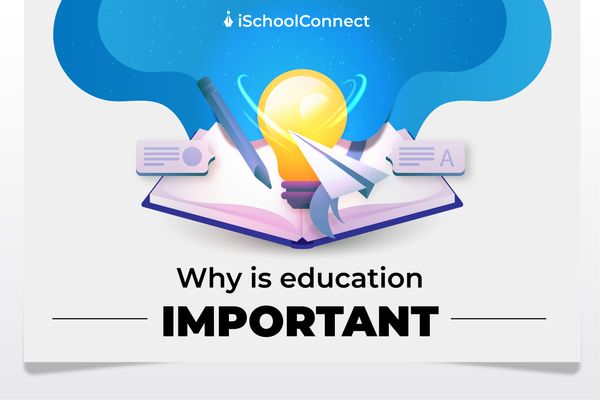
9+ compelling reasons of the Importance of education in 2024
We all know the importance of education, but why is it so important? Is it really worth the time and money? Read more to learn about the top 9 reasons highlighting the importance of education.
Table of Contents
Importance of education in life, 1. realizing your true potential , 2. sharpening critical skills , 3. more opportunities , 4. financial stability , 5. supporting a developed society , 6. giving back to the community , 7. blurring geographical boundaries, 8. equal opportunities , 9. as a tool for empowerment, importance of education for students – bonus reasons, key takeaways.
Education is not how well you can read and write but whether you can communicate with and understand the world around you. A good education not only teaches you skills but also helps you broaden your horizons, gain better perspective, and teaches you to think for yourself. People today are quite aware and comfortable speaking about social injustices and other pressing issues.
This can be attributed to the increased access to education around the world, which in turn has made society more accepting and open-minded. Therefore, education is an element of human evolution. The importance of education is also pronounced in areas of creativity and innovation. Education encourages thinking outside the box and experimenting with new ideas.
Studying abroad is a transformative aspect of education. Immersing oneself in a foreign country enriches the educational journey by providing unique insights into global diversity. It cultivates adaptability, independence, and cross-cultural communication skills, broadening horizons beyond one’s home country. Moreover, the exposure to different educational systems and diverse peers fosters creativity and innovation, crucial for addressing global challenges and advancing society.
What is the importance of education?
There many reasons why education is important in one’s life. We have listed out the top 9 reasons why education is required for you and the society we live in.
A good education helps you recognize yourself and your strengths. As you learn about the world and yourself, you come across things that interest you. You find things you are good at and figure out how you can contribute and help the world grow.
Education gives you opportunities to explore yourself, and your surroundings and empowers you to understand the ways of the world. It gives you the freedom to live a life of your choice.
Education helps you develop critical skills like decision-making, mental agility, problem-solving, and logical thinking. People face problems in their professional as well as personal lives. In such situations, their ability to make rational and informed decisions comes from how educated and self-aware they are.
Education also breeds creativity and innovation. When you take time to understand how the world works presently, only then can you come up with solutions and alternatives for existing problems.

Education opens up new avenues. When you invest in educating yourself about a particular subject, you broaden your perspective in that area. As a result, you get opportunities to test and enhance your skillset. When you attend college or become a part of an organization, you get to meet the right people. You become a part of a community and also discover new things about yourself.
Moreover, as you educate yourself, you are learning something new every day without even realizing it. Your accolades in college and otherwise are indicative of your competence and can open doors for you.
Yet another benefit of having a strong educational background is financial stability. Students who graduate from esteemed colleges have a higher chance of landing well-paying jobs. The more knowledge you gain, the more skilled you become, and hence more opportunities open for you. If you are good at something and know your way around it, rest assured you will be compensated well.

Education is imperative when it comes to building a modern society. When people learn about things like culture, history, and science, they can view problems from a much-informed perspective. Education teaches values and helps in the development of society as a whole. It gives people a chance to mold themselves into more responsible members of society.
Educated individuals are also more likely to get well-paying jobs and engage in effective trade and commerce practices. These, in turn, contribute to driving more capital to the economy. Hence, education drives growth in countries and supports a developing society.
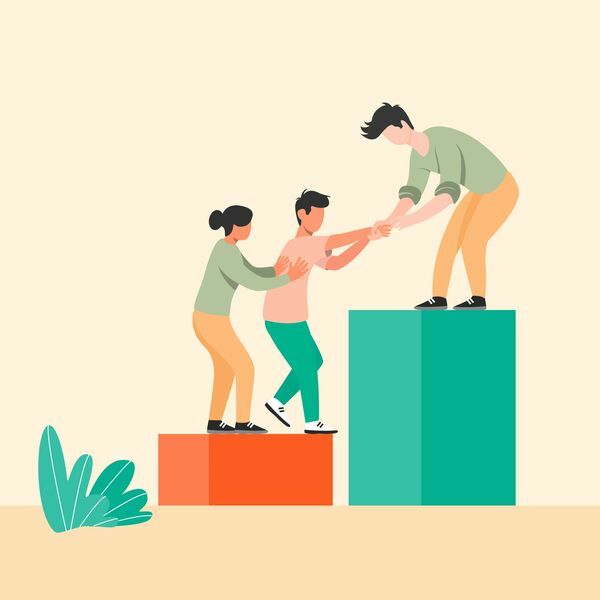
When people can afford a stable life for themselves, they are more likely to take the initiative to solve local problems. Education enables people to be self-dependent. It also teaches people the need for a stable and secure community. As a result, people join hands to help the less fortunate and solve the community’s most pressing issues.
The importance of education is at the forefront when it comes to social issues. No matter if it is the education of maintaining clean neighborhoods, practicing good sanitation, or knowing your rights. People can lift other people only by exposing them to new possibilities by educating them.
The importance of education is especially pronounced when we want to communicate with people from different cultures across the world. When we have a wide knowledge base, it is easy for us to find common ground with someone from a different place.
Digital mediums of learning and spreading information have played an instrumental role in bridging this gap. They have allowed more people to connect, interact and learn. This new way of teaching and learning has blurred geographical boundaries and contributed to sharing insights and opinions, broadening the horizons of all involved.
Education helps us create equal opportunities. People from different genders, religions, castes, races, and cultures have multiple possibilities laid out in front of them because of education. They in turn strive to create more opportunities for others, even if only within their community. Education has made filling an irrational rift possible by making merit the only criterion for judgment.
Education makes people more tolerant of others. It makes them more open-minded, so they can accept different views and opinions. This further opens the gates for equal opportunities and a better standard of living for everyone.
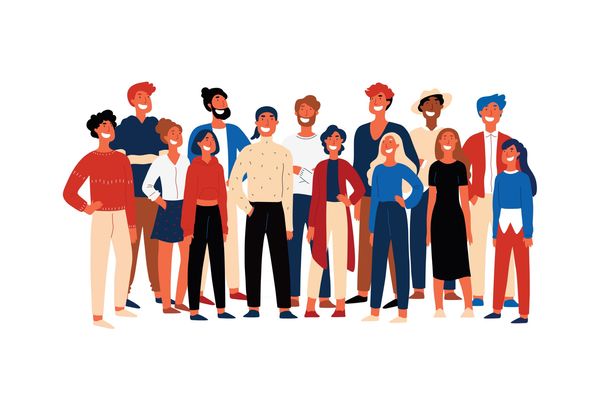
As mentioned above, education is the most powerful tool in the world. Minority sections are usually left unseen and ignored despite their potential. Educating these sections of society not only initiates their growth but also the growth of society because empowered people empower people.
For instance, increased education rates for women have led more women to join the workforce across various industries and stand up against the inequality they face. More and more women are being empowered through education, which has helped in the creation of a more inclusive and empathetic society. There is still a long way to go, but the importance of education in empowering sections of society cannot be overlooked.
- It enables you to become independent, confident, and courageous.
- Creates a safer world to live in.
- Improves productivity in society.
- Helps you get to know yourself
- Improves mental as well as physical health.
- Promotes and maintains peace among members of the global community.
- Develops problem-solving and critical thinking skills.
- Helps in keeping up with the dynamic environment and adapting to it.
- Nelson Mandela once said, “Education is the most powerful weapon in the world,” and it sure is.
- Education can change the world. If you think about it, having an education shaped you as a human being.
- You are aware of yourself, you realize your place in the world, and you can dream of achieving big things.
- This is why the importance of education cannot be stressed enough.
We hope you enjoyed reading this blog. In case of any queries, reach out to us or drop a comment below.
Liked this blog? Read next: School education | Here’s why it is important for students!
Q1. Why is education important for success?
Answer- Education provides you with opportunities and challenges. The more you learn, your knowledge increases, helping you achieve your dreams and become successful.
Q2. How can education improve your life?
Answer- By being educated, you become aware of the benefits of a healthy lifestyle. It leads to better life choices, better skills, and self-advocacy. Therefore, it not only improves your quality of life but also develops effective habits.
Q3. What is the power of education?
Answer- Good quality education has the power to inculcate necessary skills and bring change in the community. It has the power to impact individuals, communities, and future generations.
How useful was this post?
Click on a star to rate it!
Average rating 4.3 / 5. Vote count: 870
No votes so far! Be the first to rate this post.
People also liked
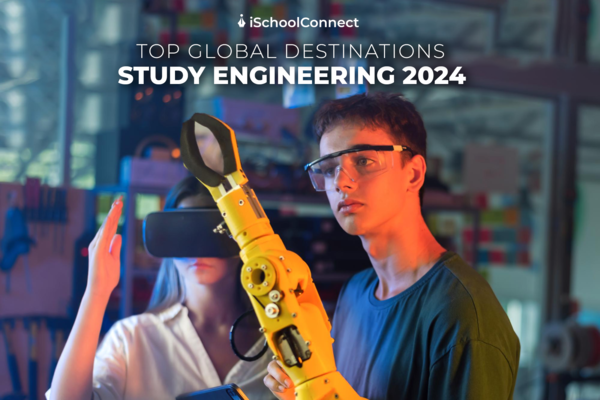
Exploring the best countries to study Engineering abroad in 2024
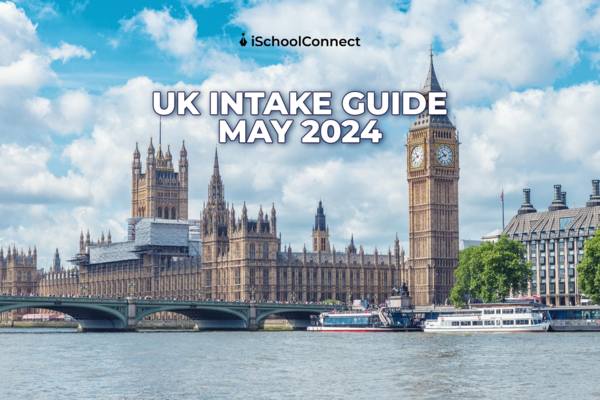
May intake in the UK 2024 | Deadlines, application process & more
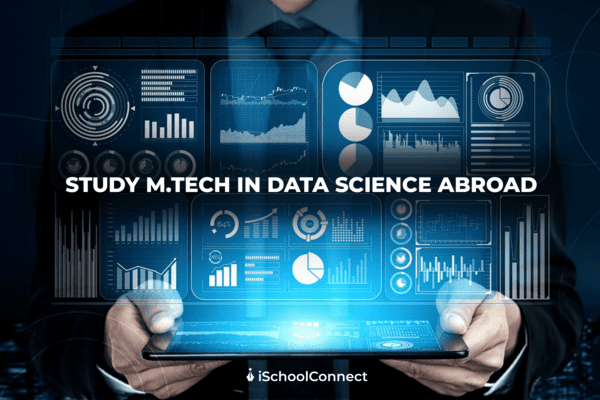
MTech in Data Science abroad | Universities, fees and scope

Artificial Intelligence engineer salary in the USA 2024
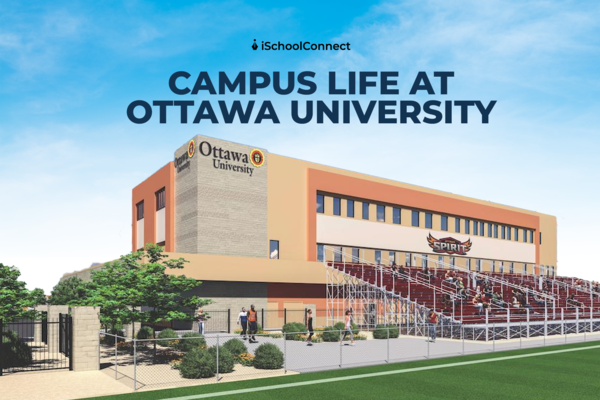
Ottawa University | Campus life

U.S. higher education fair comes to Bengaluru
5 thoughts on “9+ compelling reasons of the importance of education in 2024”, see what others are saying.
I enjoyed the whole content while I am reading summary of the importance of education, it makes me more aware. Important education sessions can change people’s attitudes and manners. People become good teachers. Thank you for making us do more interesting.
Hey, We’re glad you found it useful! Thanks for your support. Keep following our blogs for more such posts.
Very good and impressive one for speech love it
Leave a Reply Cancel reply
Your email address will not be published. Required fields are marked *
Start your journey with iSchoolConnect
Need help with your study abroad applications? Try iSchoolConnect for free!
- Where to Study? USA | UK | Canada | Australia | Singapore | Netherlands | Ireland | Germany | New Zealand
- Tests and Preparation GRE | GMAT | IELTS | TOEFL | SAT | PTE
- Visa Process Student visa for USA | Student visa for Canada | Student visa for UK
- Programs and Universities How to choose a university? | How to choose a career? | University interview tips
- Application Process How to apply? | Letter of Recommendation (LOR) | Essay and Statement of Purpose (SOP) | Document checklist | Finance documents
- Fees and Finances Cost of studying abroad | How to apply for scholarships? | Types of scholarships | Student loan | Accommodation | Part-time jobs
- Calculators Calculate your chances of studying abroad | Calculate cost of studying abroad | Which scholarship are you eligible for?
Transforming lives through education
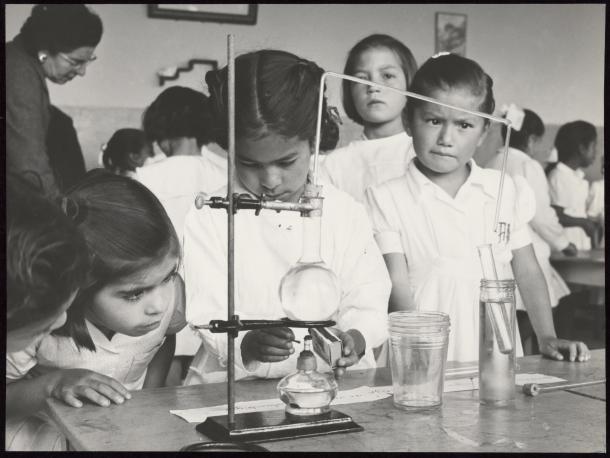
Transforming education to change our world
UNESCO provides global and regional leadership on all aspects of education from pre-school to higher education and throughout life. It works through its Member States and brings together governments, the private sector and civil society to strengthen education systems worldwide in order to deliver quality education for all. As a thought leader it publishes landmark reports and data for policy-makers, implements programmes on the ground from teacher training to emergency responses and establishes and monitors norms and standards for all to guide educational developments.
Right to education in a ruined world
Southern Italy, 1950. Three children are huddled around a makeshift desk made out of reclaimed wood, scribbling in their notebooks. The classroom has an earthen floor and roughly clad walls. The children’s clothes are ragged. They are wearing home-made slippers because shoes and the money to buy them are rare commodities in the war-ravaged south.
Although World War II ended five years earlier, the scars of conflict are still visible in this black and white photo from a report commissioned by UNESCO from legendary photojournalist David Seymour.
At the time when the photograph was taken, less than half of Italy’s population could read and write and just a third completed primary school. 70 years later, these children’s grandchildren enjoy an over 99% literacy rate. In the wake of the war, UNESCO led a major education campaign in Europe to respond to the education crisis, to rebuild links between people and to strengthen democracy and cultural identities after years of conflict. The emphasis then was on the fundamental learning skill of literacy.
Immediately after World War two UNESCO led a major education campaign in Europe to respond to the education crisis, fix and rebuild links between people and strengthen cultural identities after years of conflict. David Seymour’s images show the extent of the fight against illiteracy led by the post-war Italian government and non-governmental organisations backed by UNESCO.
Looking back at the deprived surroundings Seymour captured in his photo essay, one can see the extent of success. Seventy-one years later, those children’s grandchildren enjoy a 99.16 per cent literacy rate.
Similar programmes were held across the globe, for instance in devastated Korea where UNESCO led a major education textbook production programme in the 1950s. Several decades after, the former Secretary-General of the United Nations and Korean citizen Ban Ki-Moon expressed the importance of such a programme for the country's development:
The flowering of literacy
In a Korea devastated by war and where UNESCO led a major education textbook production programme in the 1950s, one student, Ban Ki-Moon, now Former Secretary-General of the United Nations, saw the world open up to him through the pages of a UNESCO textbook. Several decades after, he expressed the importance of such a programme for his country's development on the world stage.
Reaching the remote villages perched atop the Andes in Peru during the early 1960s wasn’t without its challenges for UNESCO’s technical assistance programme to bring literacy to disadvantaged communities. While Peru’s economy was experiencing a prolonged period of expansion, not all Peruvians were able to benefit from this growth which was limited to the industrialised coast. Instead, Andes communities were grappling with poverty, illiteracy and depopulation.
Today, the number of non-literate youths and adults around the world has decreased dramatically, while the global literacy rate for young people aged 15-24 years has reached 92 %. These astonishing successes reflect improved access to schooling for younger generations.
Photojournalist Paul Almasy has left us the poignant image of a barefoot older man while he’s deciphering a newspaper thanks to his newfound literacy skills.
The classroom at the UNESCO mission in Chinchera, in the Andean highlands of Peru, had allowed the old man to discover the world beyond his tiny village.
However, there are still huge obstacles to overcome. Data from the UNESCO Institute for Statistics shows that 617 million children and adolescents worldwide are not achieving minimum proficiency levels in reading and mathematics. Since the adoption of the Sustainable Development Goals in 2015 it is still the case that globally more than 450 million children - six out of 10 - have failed to gain basic literacy skills by the age of 10. And beyond literacy programmes, massive investments in skills for work and life, teacher training, and education policies are needed in a world that is changing ever faster.
Global priorities
Africa, home to the world’s youngest population, is not on track to achieve the targets of SDG 4. Sub-Saharan Africa alone is expected to account for 25% of the school-age population by 2030, up from 12% in 1990, yet it remains the region with the highest out-of-school rates. Girls are more likely to be permanently excluded from education than boys. The COVID-19 pandemic exacerbated inequalities, with 89% of learners not having access to computers and 82% lacking internet access to benefit from distance learning. The lack of trained teachers further jeopardizes progress towards SDG4: pre-pandemic only 64% of whom were trained at the primary level and 58% at the lower secondary level.
As part of its Priority Africa Flagship 2022 – 2029 , UNESCO has launched Campus Africa: Reinforcing Higher Education in Africa with the objective to build integrated, inclusive, and quality tertiary education systems and institutions, for the development of inclusive and equitable societies on the continent.
Gender
There are immense gender gaps when it comes to access, learning achievement and education, most often at the expense of girls and women. It is estimated that some 127 million girls are out of school around the world. For many girls and women around the world, the classroom remains an elusive, often forbidden space. UNESCO monitors the educational rights of girls and women around the world and shares information on the legal progress toward securing the right to education for women in all countries. Despite important progress in recent decades, the right to education is still far from being a reality for many girls and women. Discriminatory practices stand in the way of girls and women fully exercising their right to participate in, complete, and benefit from education. And while girls have difficulty with access, boys face increasing challenges, and particularly disengagement , from education at later stages. Globally only 88 men are enrolled in tertiary education for every 100 women. In 73 countries, fewer boys than girls are enrolled in upper-secondary education.
UNESCO's Her Atlas analyzes the legal frameworks of nearly 200 states to track which laws are enabling---or inhibiting---the right to education for girls and women. This interactive world map uses a color-coded scoring system to monitor 12 indicators of legal progress towards gender equality in the right to education.
Monitoring the right to education for girls and women
What makes me proud is that soon I will finish building a new house. I have already been able to buy a cow and I will soon be able to have another pond
Madagascar’s coastal Atsinanana region is known for its lush rainforests and fish breeding.
The country has a young population, but only one out of three children can complete primary education. Among those who are able to finish primary school, only 17% have minimum reading skills, while just a fifth of them have basic maths competencies. Once they leave school, children face a precarious labour market and unstable jobs, just like their parents.
Natacha Obienne is only 21 years old, but she is already in charge of a small fish farm, a career that is usually pursued by men. As one of the many out-of-school women in her area, she was able to set up her own business after vocational training taught her the basics of financial management and entrepreneurship, as well as the practicalities of breeding fish.
She understood that fish feeding depends on the temperature of the water. If it’s well managed, a higher number of fish is produced. ‘I immediately applied everything I learnt’ she says.
The classroom she attended changed the course of her life and she hopes other young people will follow in her footsteps.
I no longer depend on my parents and I am financially independent
She’s not alone. Around 3,000 youths in Madagascar have been trained since the start of the UNESCO-backed programme, some of whom have set up their own business and achieved financial independence. Education was the best way to ease people's emancipation.
Like Emma Claudia, 25, who after her vocational training started a restaurant with just a baking tray and a saucepan.
What does my family think? They are surprised and amazed by my evolution because I haven’t been able to complete my studies. I don’t have any school diplomas.
While Natacha and Emma Claudia have been able to transform their world through education, millions of children out of school around the world are still denied that dream.
Discrimination against girls remains widespread and nearly one billion adults, mostly women, are illiterate. The lack of qualified teachers and learning materials continues to be the reality in too many schools.
Challenging these obstacles is getting harder as the world grapples with the acceleration of climate change, the emergence of digitization and artificial intelligence, and the increasing exclusion and uncertainty brought by the Covid-19 pandemic.
We resumed school a while ago and it’s been stressful. We are trying to retrieve what we lost during quarantine, the worst thing about not being in school is the number of things you miss. Learning behind a screen and learning in person are incomparable.
Aicha is lucky to be able to continue her education. Her country has the highest rate of out-of-school children in the world – 10.5 million – and nearly two-thirds are women. To compound the problem, Nigeria’s northern states suffer from the violence that targets education.
In Russia, too, Alexander and his school friends had to cope with virtual learning and the lack of interactions.
All Russian students were moved to online studying. Needless to say, it was a rough year for all of us, several friends were struggling with depressive moods. They were missing their friends and teachers. So did I.
To protect their right to education during this unprecedented disruption and beyond, UNESCO has launched the Global Education Coalition , a platform for collaboration and exchange that brings together more than 175 countries from the UN family, civil society, academia and the private sector to ensure that learning never stops.
Building skills where they are most needed
Crouched over a pedal-powered sewing machine, Harikala Buda looks younger than her 30 years. Her slim fingers fold a cut of turquoise brocade before deftly pushing it under the needle mechanism.
Harikala lives in rural Nepal, where many villagers, particularly women, don’t have access to basic education. Women like Harikala rely on local community UNESCO-supported learning centres to receive literacy and tailoring skills. In a country where 32% of people over 15 are illiterate, particularly women and those living in rural areas, education is the only route to becoming self-reliant.
I have saved a small amount. My husband’s income goes towards running the house, mine is saved. We must save today to secure our children’s future
Having access to a classroom is the first step to creating a better world for the student, the student’s children and the student’s community. This is a lesson that matters a lot to
Kalasha Khadka Khatri, a 30-year-old Nepali mother. She grew up in a family of 21, with no option to go to school. Two of her children didn’t survive infancy because she was unable to pay for medical treatment. After acquiring sewing skills at her local community learning centre, Kalasha can now provide for her family.
Harikala and Kalasha were able to learn their skills through the support of the UNESCO’s Capacity Development for Education Programme (CapED), an initiative that operates in some 26 least-developed and fragile countries.
Reimagining the future of education
As the world slowly recovers after the COVID-19 crisis, 244 million children and youth worldwide are still out of school. And a 2022 survey by UNESCO, UNICEF, World Bank and OECD finds that one quarter of countries have yet to collect information on children who have and have not returned to school since the pandemic started.
Rebuilding how and where we learn requires policy advice, stronger education legislation, funds mobilisation, advocacy, targeted programme implementation based on sound analysis, statistics and global information sharing. Quality education also calls for the teaching of skills far beyond literacy and maths, including critical thinking against fake news in the digital era, living in harmony with nature and the ethics of artificial intelligence, to name a few of the critical skills needed in the 21st century.
UNESCO captured the debate around the futures of education in its landmark report from 2022 entitled Reimagining our futures together: A new social contract for education.
The Transformative Education Summit , that took place during the United Nations General Assembly in September 2022, as well as the Pre-Summit hosted by UNESCO to forge new approaches to education after the COVID-19 crisis, address the toughest bottlenecks to achieving SDG 4 and inspire young people to lead a global movement for education. World leaders committed to put education at the top of the political agenda. UNESCO has been mobilizing and consulting all stakeholders and partners to galvanize the transformation of every aspect of learning. UNESCO launched a number of key initiatives such as expanding public digital learning, making education responsive to the climate and environmental emergency, and improving access for crisis-affected children and youth.
The two children sitting at their makeshift desk in Italy in 1950 could not have imagined what a modern learning space might look like or how a modern curriculum or the tools and teacher training to deliver it might have been thought out and shaped to offer them the most from education. They could not have imagined the global drive to ensure that everyone was given a chance to learn throughout life. The only thing that has not changed since the photo was taken is the fact that education remains a fundamental and universal human right that can change the course of a life. To the millions still living in conditions of poverty, exclusion displacement and violence it opens a door to a better future.
Explore all the work and expertise of UNESCO in education
Related items.

25,000+ students realised their study abroad dream with us. Take the first step today
Here’s your new year gift, one app for all your, study abroad needs, start your journey, track your progress, grow with the community and so much more.

Verification Code
An OTP has been sent to your registered mobile no. Please verify

Thanks for your comment !
Our team will review it before it's shown to our readers.

- Education /
Importance of Education
- Updated on
- Dec 13, 2023
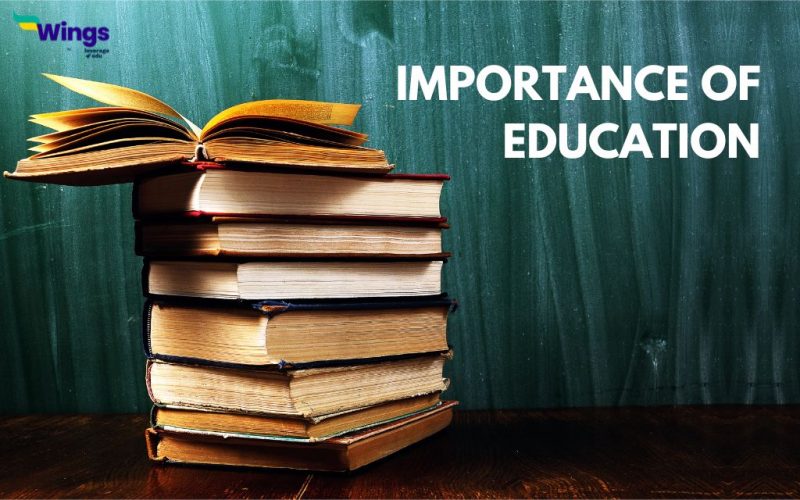
Education plays a pivotal role in all of our lives and paves the way for all of us to reach our highest potential. When we talk about the importance of education in life, it is extremely important to understand what is education. In this blog, we explore the importance of education in life, the significance of modern education and its many aspects. Read on!
This Blog Includes:
What is education, importance of education for a country, education as a tool for development, importance of education: understanding our responsibilities, emphasis on creativity, the role of institutions, continuing education & lifelong learning, the need for counselling.
Education is the medium that gives us the skills, techniques, information and knowledge to know, understand and respect the duties we have towards our society, families and nation. Therefore, the magnitude of the importance of education in life is huge as well as multifold. The importance of education in life is that it helps everyone develop a good perspective of looking at the world and our society. Education helps us in getting new ideas and exploring new ideas.
Education helps a person to get knowledge and improve confidence in life. It can help you improve your career and your personal growth. An educated person can become a great citizen in society. It helps you to take the right decisions in life.
The modern, developed and industrialised world is running on the wheels of education. To be able to survive in the competitive world, we all need education as a torch that leads the way. Mentioned below are the various features of education which outline the importance of education in human life:
- Safety Against Crime : The chances of an educated person getting involved in crime or criminal acts are very low. An educated person is well aware of his/ her surroundings and is less susceptible to getting cheated or fooled.
- Women’s Empowerment: The empowerment of women is an essential pillar to optimize the good functioning of our society and nation as a whole. We can break old customs like child marriage, sati, dowry, etc only by educating the men and women of our nation. The fundamental right of Right to Freedom and Expression can only be achieved if the women of our country are educated and empowered. We can win the fight against the many social evils.
- Removing Poverty: Education is pivotal in removing poverty from our society and our country. The clutches of poverty are very harsh and one of the main factors behind all the problems of our society. If a person is well educated, he/she can get a good job and earn money to sustain his/ her family.
- Preventing War and Terrorism: Education teaches everyone the importance of peace and brotherhood. The importance of staying united and spreading love is the need of the hour. To achieve world peace and prevent war and terrorism, education is important.
- Maintaining Law and Order: A good political ideology can only be developed if the citizens of our country are educated and taught the importance of following and respecting the law and order of our country. Law-abiding citizens contribute majorly to improving and sustaining the law and order of the country and the world.
Related Reads:
Mentioned below are the reasons why education is important for our country, as well as any country in the world.
- Citizens of a country understand their true potential through the means of education.
- Education helps in getting an individual a good-paying job, which helps in improving the economic status of his/ her family.
- It teaches an individual the importance of differentiating between good and bad as well as right and wrong.
- An educated person can strive for the betterment of a country,
- More educated individuals help in creating more jobs for everyone. This in turn helps in solving the problem of unemployment in the country.
- Voting which is one of the basic tenets of our thriving democracy is better understood and utilised as a right only through the means of education.
The stakeholders of education, namely, governments, organisations and students themselves agree on its multidimensional essentiality. High-quality education, particularly tertiary education is a major catalyst of development in families across the income spectrum. Further, with the integration of multidimensional goals, the importance of education has been accentuated and individuals have grown more conscious towards the environment and society developing an awareness lacking in previous generations. Published on the World Bank blog, the article “ Education is Fundamental to Development and Growth ” aptly summarises the fact that education, through various methods, carries the potential to transform people’s lives.
Don’t Forget to Check Out: Special Education Courses
An uneducated individual can never be fully aware of their responsibilities towards each other as human beings and the world as a whole. As human beings, we have to give back to the society we live in and make it a better place to live for everybody. Proper education teaches an individual to think beyond their interests and helps them in developing an ability to make the world a happier, safer place for the next generation.
One of the major points of importance of education today stems from the fact that the multifarious tools and techniques adopted afford greater avenues of creativity in various shapes and forms. Universities study curricula not only include drama and art in education but also sports , athletics, public speaking , entrepreneurship , photography , diplomacy, volunteering and much more. With technology changing the face of education, students can utilise digital advancements to gain an all-around understanding of their chosen field of interest and develop an awareness of the prevalent issues and further contribute towards the betterment of it.
Institutions across the globe, recognise the importance of education in one’s life, operate with flexible previous studies criteria and along with considering multiple other factors such as experience and extracurricular activities , amongst others. This encourages individuals hailing from a diversity of backgrounds to apply and gain access to best-in-class infrastructure, leading professors and a multicultural study environment. For instance, now, to enter into a master’s program in a specialised field like Arts Studies and Appreciation, an individual from sciences will also be considered if they harbour a genuine interest to study Arts. Further, with a myriad of scholarships such as MIT Scholarships , Aga Khan Scholarship and Inlaks Scholarships , finance is no longer a constraint for higher studies.
Distance learning, adult education and online education are all incremental steps towards highlighting the importance of education. With the growing need for access to quality education at one’s ease and comfort, many top colleges around the globe have included degree and non-degree study programs as part of their course offerings. Now, not only one can take topic-specific courses online but major degrees such as bachelor’s and master’s can also be taken at one’s own pace. Further, a huge number of degrees have no restrictions related to age and background as well.
Also Read: Objectives of Educational Technology
On the flip side, a considerable number of individuals going through varying levels of education, i.e, primary, secondary and higher education often tend to become detached from their studies and find it difficult to pinpoint their interests to further assess which fields suit their interests. Consequently, this results in the high dropout rates experienced in India. In this respect, educational counselling can play a major role in aiding students in a variety of choices, namely opting for a stream/specialisation, job-related decisions and even emotional and financial support.
You cannot Miss these Educational Quotes !
Education aids in the development of critical skills such as decision-making, mental agility, problem-solving, and logical reasoning. People face difficulties in both their professional and personal lives. In such cases, their ability to make rational and informed decisions is determined by their level of education and self-awareness.
Young people should be prepared for life, work, and citizenship through education. All three purposes of education require knowledge of the natural and engineered environments, as well as how people live in the world.
Value education is also important in assisting individuals in carrying out their social, moral, and democratic obligations. It takes many forms, including character, citizenship, emotional, and spiritual development. High-quality learning sessions can have a significant impact on your personality and character.
In a conscious effort to underline the importance of education, Leverage Edu offers a one-stop and comprehensive solution catering to the educational needs of students and professionals. From AI-based counselling and mentoring by international experts to assisting in getting admission into top universities as well as post-admission services, we understand that the present-day need for students does not end merely at career counselling but they might also require wholesome education-related guidance.
If you are an individual looking to build a career or already a few years into a profession, take advantage of the free 30-minute counselling session at Leverage Edu and step towards making the right decisions to advance towards your dream career.
Team Leverage Edu
Leave a Reply Cancel reply
Save my name, email, and website in this browser for the next time I comment.
Contact no. *
10 comments
Right, education is the thing who made a normal human to modern human and increase thinking ability on facts and figures.
Thank you for your feedback!
Thanku for sharing this post.. you share all the point with perfect examples .. I like your writing skills ..
Thanks for reading. You can also read: Importance of Education in Child’s Life Understanding the Role of a Mentor in Education Importance of Value Education Article on Importance of Education Importance of Education in Development
Leverage edu is amazing , I’m satisfied with it. It is a very helpful source to increase mind power. 🙂👍 Pleasure #ZiDdi
Thanks for such an informative article
You have given the information required. That too CBSE education is growing faster and in Bangalore the Best CBSE school is Harvest CBSE School.

Leaving already?
8 Universities with higher ROI than IITs and IIMs
Grab this one-time opportunity to download this ebook
Connect With Us
25,000+ students realised their study abroad dream with us. take the first step today..

Resend OTP in

Need help with?
Study abroad.
UK, Canada, US & More
IELTS, GRE, GMAT & More
Scholarship, Loans & Forex
Country Preference
New Zealand
Which English test are you planning to take?
Which academic test are you planning to take.
Not Sure yet
When are you planning to take the exam?
Already booked my exam slot
Within 2 Months
Want to learn about the test
Which Degree do you wish to pursue?
When do you want to start studying abroad.
September 2024
January 2025
What is your budget to study abroad?

How would you describe this article ?
Please rate this article
We would like to hear more.

How Education Helps In Building Presence
Did you know that Mukesh Dhirubhai Ambani, one of India’s most successful businessmen is a college dropout? He dropped out…

Did you know that Mukesh Dhirubhai Ambani, one of India’s most successful businessmen is a college dropout? He dropped out of Stanford University to join his father’s business. Like him, many successful people across the world are college dropouts. They make us mull over the question—what is the importance of education in our life?
Education And Its Importance
Most of us are under the impression that the role of education is to help us gain knowledge from schools and colleges. However, the power of education isn’t limited to acquiring knowledge only from formal learning institutes. Earning a formal degree isn’t a necessary step to receiving an education. Learning can happen anywhere. In other words, education is the ability to think with or without the help of classrooms. It helps us apply the knowledge we’ve acquired in the world and understand the value of life.
The power of education is so strong that it can last a lifetime. Moreover, education is a lifelong process because there is no end to learning new things and acquiring new knowledge. The role of education is to help us build opinions and have different perspectives in our lives. It not only helps us improve our lives; it also helps us utilize our knowledge to improve the lives of others.
Power Of Education
Education forms character strengthens minds and makes us independent beings. It helps us exercise our intelligence and put our potential to optimal use. ( sapns2 ) By championing the importance of good education, we open doors to a better world. You learn how to stand out in a crowd and articulate your visions clearly. Education helps you create a unique purpose.
Harappa Education’s Building Presence course is designed to help you put your education skills to the best use. The ‘Building a Brand’ model will help you learn the benefits of creating and chasing your unique purpose. The TEA (Trust, Emotional Intelligence and Authenticity) Skills framework will help you communicate your ideas with people in a compelling way while exhibiting confidence.
Importance Of Education In Our Life
The role of education is to teach us how to conduct ourselves in life by giving us a conscience. It makes us more certain and confident about our long-term goals in life.
Here are a few facts highlighting the importance of good education:
1. Spreads Awareness
Education helps develop a conscience and often helps us differentiate between right and wrong. The role of education is to question everything and not take anything at its face value. An educated mind usually pursues the logic behind actions and decisions.
2. Drives Progress
It’s because of the power of education that we can access a variety of opportunities. From the industrial revolution days to the present technologically advanced era, education has helped us make the leap. Discoveries, inventions, and all social/technological progress are proof of embracing the importance of education in our life.
3. Improves Lives
The role of education is to help us gain better control of our lives. If you want to change your life for the better, education helps you do that. For example, you decide to start your own company. The power of education will help you reach this realization. It gives you the confidence to use your knowledge and skill-sets.
4. Empowers People
Education improves our decision-making capabilities and gives us the courage to stand up for our beliefs. The importance of education in our life is rooted in real-time examples like women standing up against domestic violence or transgender communities fighting for civil rights.
5. Changes The World
We’ve already established that education is not only helping us but also others around us. You’re better aware of your rights and responsibilities as a citizen. If you feel empowered, you’ll want to empower others. To make better judgments and use your skills to make the world a better place is the power of education and its importance.
They say, “Instruction ends in the schoolroom but education only ends in life”. Let’s keep reminding ourselves of the importance of education in our lives and continue making the world a better place.
Explore the skills & topics such as Social Skills , How to Improve Social Skills , Conversation Skills & Key Skills for a Job from our Harappa Diaries blog section and be workplace ready.

Suggestions or feedback?
MIT News | Massachusetts Institute of Technology
- Machine learning
- Social justice
- Black holes
- Classes and programs
Departments
- Aeronautics and Astronautics
- Brain and Cognitive Sciences
- Architecture
- Political Science
- Mechanical Engineering
Centers, Labs, & Programs
- Abdul Latif Jameel Poverty Action Lab (J-PAL)
- Picower Institute for Learning and Memory
- Lincoln Laboratory
- School of Architecture + Planning
- School of Engineering
- School of Humanities, Arts, and Social Sciences
- Sloan School of Management
- School of Science
- MIT Schwarzman College of Computing
Is it the school, or the students?
Press contact :.
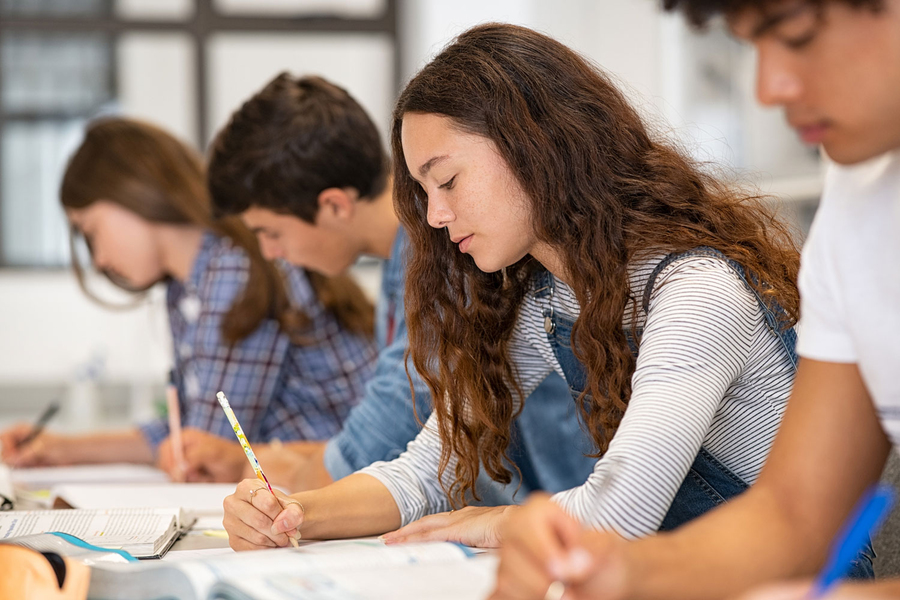
Previous image Next image
Are schools that feature strong test scores highly effective, or do they mostly enroll students who are already well-prepared for success? A study co-authored by MIT scholars concludes that widely disseminated school quality ratings reflect the preparation and family background of their students as much or more than a school’s contribution to learning gains.
Indeed, the study finds that many schools that receive relatively low ratings perform better than these ratings would imply. Conventional ratings, the research makes clear, are highly correlated with race. Specifically, many published school ratings are highly positively correlated with the share of the student body that is white.
“A school’s average outcomes reflect, to some extent, the demographic mix of the population it serves,” says MIT economist Josh Angrist, a Nobel Prize winner who has long analyzed education outcomes. Angrist is co-author of a newly published paper detailing the study’s results.
The study, which examines the Denver and New York City school districts, has the potential to significantly improve the way school quality is measured. Instead of raw aggregate measures like test scores, the study uses changes in test scores and a statistical adjustment for racial composition to compute more accurate measures of the causal effects that attending a particular school has on students’ learning gains. This methodologically sophisticated research builds on the fact that Denver and New York City both assign students to schools in ways that allow the researchers to mimic the conditions of a randomized trial.
In documenting a strong correlation between currently used rating systems and race, the study finds that white and Asian students tend to attend higher-rated schools, while Black and Hispanic students tend to be clustered at lower-rated schools.
“Simple measures of school quality, which are based on the average statistics for the school, are invariably highly correlated with race, and those measures tend to be a misleading guide of what you can expect by sending your child to that school,” Angrist says.
The paper, “ Race and the Mismeasure of School Quality ,” appears in the latest issue of the American Economic Review: Insights . The authors are Angrist, the Ford Professor of Economics at MIT; Peter Hull PhD ’17, a professor of economics at Brown University; Parag Pathak, the Class of 1922 Professor of Economics at MIT; and Christopher Walters PhD ’13, an associate professor of economics at the University of California at Berkeley. Angrist and Pathak are both professors in the MIT Department of Economics and co-founders of MIT’s Blueprint Labs, a research group that often examines school performance.
The study uses data provided by the Denver and New York City public school districts, where 6th-graders apply for seats at certain middle schools, and the districts use a school-assignment system. In these districts, students can opt for any school in the district, but some schools are oversubscribed. In these circumstances, the district uses a random lottery number to determine who gets a seat where.
By virtue of the lottery inside the seat-assignment algorithm, otherwise-similar sets of students randomly attend an array of different schools. This facilitates comparisons that reveal causal effects of school attendance on learning gains, as in a randomized clinical trial of the sort used in medical research. Using math and English test scores, the researchers evaluated student progress in Denver from the 2012-2013 through the 2018-2019 school years, and in New York City from the 2016-2017 through 2018-2019 school years.
Those school-assignment systems, it happens, are mechanisms some of the researchers have helped construct, allowing them to better grasp and measure the effects of school assignment.
“An unexpected dividend of our work designing Denver and New York City’s centralized choice systems is that we see how students are rationed from [distributed among] schools,” says Pathak. “This leads to a research design that can isolate cause and effect.”
Ultimately, the study shows that much of the school-to-school variation in raw aggregate test scores stems from the types of students at any given school. This is a case of what researchers call “selection bias.” In this case, selection bias arises from the fact that more-advantaged families tend to prefer the same sets of schools.
“The fundamental problem here is selection bias,” Angrist says. “In the case of schools, selection bias is very consequential and a big part of American life. A lot of decision-makers, whether they’re families or policymakers, are being misled by a kind of naïve interpretation of the data.”
Indeed, Pathak notes, the preponderance of more simplistic school ratings today (found on many popular websites) not only creates a deceptive picture of how much value schools add for students, but has a self-reinforcing effect — since well-prepared and better-off families bid up housing costs near highly-rated schools. As the scholars write in the paper, “Biased rating schemes direct households to low-minority rather than high-quality schools, while penalizing schools that improve achievement for disadvantaged groups.”
The research team hopes their study will lead districts to examine and improve the way they measure and report on school quality. To that end, Blueprint Labs is working with the New York City Department of Education to pilot a new ratings system later this year. They also plan additional work examining the way families respond to different sorts of information about school quality.
Given that the researchers are proposing to improve ratings in what they believe is a straightforward way, by accounting for student preparation and improvement, they think more officials and districts may be interested in updating their measurement practices.
“We’re hopeful that the simple regression adjustment we propose makes it relatively easy for school districts to use our measure in practice,” Pathak says.
The research received support from the Walton Foundation and the National Science Foundation.
Share this news article on:
Related links.
- Josh Angrist
- Parag Pathak
- Blueprint Labs
- Department of Economics
Related Topics
- K-12 education
- Education, teaching, academics
- School of Humanities Arts and Social Sciences
Related Articles
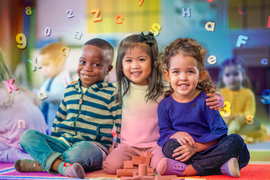
Study: Preschool gives a big boost to college attendance

MIT economist Joshua Angrist shares Nobel Prize
Previous item Next item
More MIT News
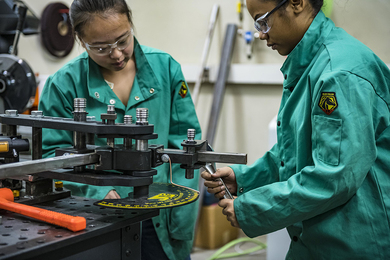
Training manufacturing technologists to be future shop floor leaders
Read full story →
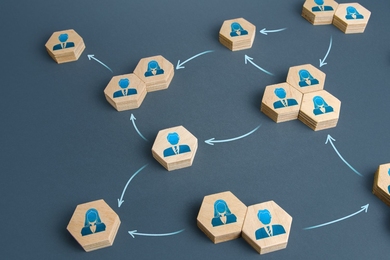
Characterizing social networks

Designing solutions to ensure equity in health care
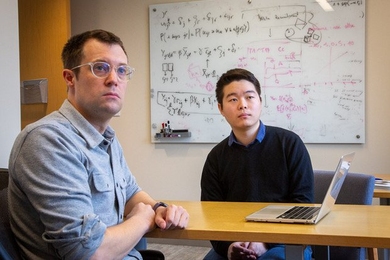
MIT economics to launch new predoctoral fellowship program
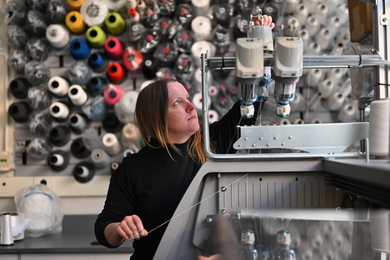
Programming functional fabrics
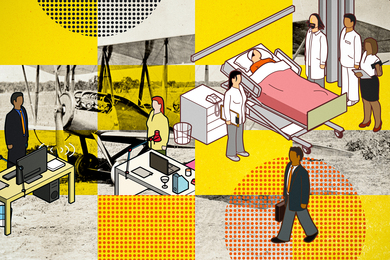
Most work is new work, long-term study of U.S. census data shows
- More news on MIT News homepage →
Massachusetts Institute of Technology 77 Massachusetts Avenue, Cambridge, MA, USA
- Map (opens in new window)
- Events (opens in new window)
- People (opens in new window)
- Careers (opens in new window)
- Accessibility
- Social Media Hub
- MIT on Facebook
- MIT on YouTube
- MIT on Instagram
7-Week SSP & 2-Week Pre-College Program are still accepting applications until April 10, or earlier if all course waitlists are full. 4-Week SSP Application is closed.
Celebrating 150 years of Harvard Summer School. Learn about our history.
8 Time Management Tips for Students
Don't let a hectic schedule get the better of you with these time management tips.
Lian Parsons
College can be a stressful time for many students and time management can be one of the most crucial — but tricky — skills to master.
Attending classes, studying for exams, making friends, and taking time to relax and decompress can quickly fill up your schedule. If you often find yourself wishing there were more hours in the day, this guide will offer time management tips for students so you can accomplish what you need to get done, have fun with your friends, and gain back some valuable time for yourself.
1. Create a Calendar
Don’t be caught by surprise by an important paper due two days from now or a dinner with your family the same night you planned for a group study session. Create a calendar for yourself with all your upcoming deadlines, exams, social events, and other time commitments well in advance so you can see what’s coming up.
Keep your calendar in a place where you can see it every day, such as in your planner or on your wall above your desk. If you prefer a digital calendar, check it first thing every day to keep those important events fresh and top-of-mind. For greater efficiency, make sure you can integrate it with your other tools, such as your email.
Digital calendar options include:
- Google Calendar
- Outlook Calendar
- Fantastical
2. Set Reminders
After you’ve created your calendar, give yourself periodic reminders to stay on track such as to complete a study guide in advance or schedule a meeting for a group project. Knowing deadlines is important; however, staying on top of the micro tasks involved in meeting those deadlines is just as important. You can set an alarm on your phone, write it down in a physical planner, or add an alert to your digital calendar. The reminders will help to prevent things from slipping through the cracks during particularly hectic days.
Make sure you’ve allotted enough time to study for that big test or write that final paper. Time management is all about setting yourself up for success in advance and giving yourself the tools to accomplish tasks with confidence.
Read our blogs, Your Guide to Conquering College Coursework and Top 10 Study Tips to Study Like a Harvard Student , for more suggestions.
3. Build a Personalized Schedule
Each person’s day-to-day is different and unique to them, so make sure your schedule works for you. Once you’ve accounted for consistent commitments such as classes or your shifts at work, add in study sessions, extracurriculars, chores and errands, and social engagements.
Consider your personal rhythm. If you typically start your day energized, plan to study or accomplish chores then. If you fall into an afternoon slump, give yourself that time to take a guilt-free TV break or see friends.
Having a schedule that works for you will help maximize your time. Plus, knowing exactly when your laundry day is or when your intramural volleyball practice is every week will help you avoid trying to cram everything in one day (or running out of clean socks!)
Explore summer college courses.
4. Use Tools That Work For You
Just like your calendar and schedule, the tools you use to keep you organized should be the right fit for you. Some students prefer physical planners and paper, while some prefer going totally digital. Your calendar can help you with long-term planning, but most of these tools are best for prioritizing from day to day.
Explore what best suits your needs with some of the following suggestions:
Planners can help you keep track of long-term deadlines, such as important essay deadlines, upcoming exams, and appointments and meetings. They often provide a monthly overview each month, as well as day-to-day planning sections, so you can stay ahead.
- Papier – Offers a 20% student discount
If your schedule is jam-packed and you have trouble figuring out what to do and when, scheduling day by day—and sometimes even hour by hour—can help you slot in everything you need to do with less stress.
- Structured app
Note Taking
From class to study sessions to errands, keeping track of everything can feel overwhelming. Keeping everything in one place, whether on the go or at your desk, can help keep you organized.
- Bullet journals
5. Prioritize
Sometimes there really is too much to do with too little time. In these instances, take just a few minutes to evaluate your priorities. Consider which deadlines are most urgent, as well as how much energy you have.
If you are able to complete simple tasks first, try getting them out of the way before moving on to tasks that require a lot of focus. This can help to alleviate some of the pressure by checking a couple things off your to-do list without getting bogged down too early.
If you are struggling to fit everything in your schedule, consider what you can postpone or what you can simply say no to. Your friends will likely understand if you have to meet them for coffee another time in order to get in a final library session before a challenging exam.
6. Make Time to Have Fun — And For Yourself
Time management isn’t just about getting work done. It’s also about ensuring that you can put yourself and your mental wellbeing first. Consistently including time for yourself in your schedule helps to keep your mental health and your life in balance. It can also be helpful to have things to look forward to when going through stressful periods.
Whether it’s going for a bike ride along the river, spending time with your friends and family, or simply sleeping in on a Sunday, knowing you have space to relax and do things you enjoy can provide better peace of mind.
7. Find Support
Preparation and organization can sometimes only get you so far. Luckily, you have plenty of people rooting for your success. Keep yourself and your classmates on task by finding an accountability partner or study buddies. Remind your roommates when you need extra space to work on a paper.
Your school’s academic resource center is also there to support you and point you in the right direction if you need additional help. Getting—and staying—organized is a collaborative effort and no one can do it on their own.
8. Be Realistic and Flexible
Sometimes unforeseen circumstances will come up or you simply may not be able to get to everything you set out to do in a given day. Be patient with yourself when things don’t go exactly to plan. When building your calendar, schedule, and priorities list, be realistic about what you can accomplish and include buffer time if you’re unsure. This can help to reduce obstacles and potential friction.
Time management isn’t just about sticking to a rigid schedule—it’s also about giving yourself space for change.
Learn more about our summer programs.
About the Author
Lian Parsons is a Boston-based writer and journalist. She is currently a digital content producer at Harvard’s Division of Continuing Education. Her bylines can be found at the Harvard Gazette, Boston Art Review, Radcliffe Magazine, Experience Magazine, and iPondr.
Managing Stress in High School
Our reasons may vary, but everyone experiences stress. Here are some of the common reasons high school students feel stressed, and what they can do about it.
Harvard Division of Continuing Education
The Division of Continuing Education (DCE) at Harvard University is dedicated to bringing rigorous academics and innovative teaching capabilities to those seeking to improve their lives through education. We make Harvard education accessible to lifelong learners from high school to retirement.


IMAGES
VIDEO
COMMENTS
We just need to be clear on terms. There are a few terms that are often confused or used interchangeably—"learning," "education," "training," and "school"—but there are important differences between them. Learning is the process of acquiring new skills and understanding. Education is an organized system of learning.
6. A Safer World. Education is something that's not only needed on a personal level, but also on a global level, as it's something that keeps our world safe and makes it a more peaceful place. Education tends to teach people the difference between right and wrong, and can help people stay out of risky situations. 7.
The importance of education in life. We'll start off by exploring some of the reasons why education is important for individual lives. This will include the ways that education is good for the physical, psychological and social wellbeing of human individuals. Creates stability during childhood.
Transforming education requires a significant increase in investment in quality education, a strong foundation in comprehensive early childhood development and education, and must be underpinned by strong political commitment, sound planning, and a robust evidence base. Learning and skills for life, work and sustainable development.
Education helps a person hone their communication skills by learning how to read, write, speak and listen. Education develops critical thinking. This is vital in teaching a person how to use logic when making decisions and interacting with people (e.g., boosting creativity, enhancing time management).
The link between education to health and well-being is clear. Education develops the skills, values and attitudes that enable learners to lead healthy and fulfilled lives, make informed decisions, and engage in positive relationships with everyone around them. Poor health can have a detrimental effect on school attendance and academic performance.
The right to education is a human right and indispensable for the exercise of other human rights. Quality education aims to ensure the development of a fully-rounded human being. It is one of the most powerful tools in lifting socially excluded children and adults out of poverty and into society. UNESCO data shows that if all adults completed ...
ity education for all and promote lifelong learning. Why does education matter? Education enables upward socioeconomic mobility and is a key to escaping poverty. Education helps reduce
Education is a human right, a powerful driver of development, and one of the strongest instruments for reducing poverty and improving health, gender equality, peace, and stability. It delivers large, consistent returns in terms of income, and is the most important factor to ensure equity and inclusion. For individuals, education promotes ...
Nelson Mandela famously said, "Education is the most powerful weapon which you can use to change the world.". An educated society is better equipped to tackle the challenges that face modern America, including: Climate change. Social justice. Economic inequality.
Having a degree opens doors. The process of learning and becoming educated creates a person who is well-rounded, can think critically, be prepared to make hard decisions, read, write, do arithmetic, learn societal norms, express your emotions and more. These create quality and are critically important to society.
Education is the most powerful weapon which you can use to change the world. — Nelson Mandela, 1918-2013, South African President, philanthropist. The object of education is to teach us to love ...
A good education is important to achieving the American Dream. For much of the 20 th century, a cornerstone of the American Dream has been the belief that, with hard work, all adults should be ...
Education is an impressive tool that can be used to initiate social change, promote economic development and increase prosperity. "Education is a powerful weapon that you can use to change the world.". - Nelson Mandela. Education is more than going to your classes and doing the work necessary to get a passing grade—it's about preparing ...
7. Promoting Equality And Empowerment. One of the most important benefits of education is probably the promotion of equality and empowerment within society. Higher education can make people more open-minded in accepting others' ideas and opinions regardless of race, gender, age, etc. In addition, education empowers people through expert ...
Quality education reduces poverty. If all children in low-income countries left school able to read, global poverty would fall by 12 %. 1 If all adults completed secondary education, 420 million people could be lifted out of poverty, reducing the total number of poor people by more than half worldwide. 2 An extra year of school can increase men's income by at least 10 %, women's income by at ...
Provides stability and financial security. Stability in our lives is a result of education. You have to work for your job goals; education is the best way to achieve that. By doing so, you will have stability and won't be concerned that you won't have a job. On the other hand, education also has the advantage of ensuring financial security.
"Education is the most powerful weapon which you can use to change the world," as Nelson Mandela said. It helps people become better citizens, get a better-paid job, shows the difference between good and bad. Education shows us the importance of hard work and, at the same time, helps us grow and develop.
In his talk, he accuses the traditional, academic curriculum of being a relic of the 19th century, a 'factory model' of schooling, which squanders pupil creativity. As his enormous popularity ...
The importance of education is at the forefront when it comes to social issues. No matter if it is the education of maintaining clean neighborhoods, practicing good sanitation, or knowing your rights. People can lift other people only by exposing them to new possibilities by educating them. 7. Blurring geographical boundaries.
Transforming education to change our world. UNESCO provides global and regional leadership on all aspects of education from pre-school to higher education and throughout life. It works through its Member States and brings together governments, the private sector and civil society to strengthen education systems worldwide in order to deliver ...
Education helps in getting an individual a good-paying job, which helps in improving the economic status of his/ her family. It teaches an individual the importance of differentiating between good and bad as well as right and wrong. More educated individuals help in creating more jobs for everyone.
Here are a few facts highlighting the importance of good education: 1. Spreads Awareness. Education helps develop a conscience and often helps us differentiate between right and wrong. The role of education is to question everything and not take anything at its face value. An educated mind usually pursues the logic behind actions and decisions.
Are schools that feature strong test scores highly effective, or do they mostly enroll students who are already well-prepared for success? A study co-authored by MIT scholars concludes that widely disseminated school quality ratings reflect the preparation and family background of their students as much or more than a school's contribution to learning gains.
This type of education is grounded in the understanding that early childhood is a critical period of development, where children learn foundational skills, attitudes, and learning patterns. The importance of early childhood education lies in its impact on a child's emotional, cognitive, and social development.
When it comes to making decisions about your future, there are a lot of factors to consider. One of the most important decisions you will ever make is whether to go to college. Some people might say that college is no longer important, a poor investment or that you can get a well-paying job without going to college. We disagree.
U.S. Secretary of Education Miguel Cardona and U.S. Acting Secretary of Labor Julie Su will travel to Reno and Las Vegas, Nevada, this week to lift up the importance of good jobs and high-quality and affordable pathways into teaching to help address educator shortages.
Behind every common-sense rule, there's a more complicated story about ethics in education, decision-making and leadership. John Pijanowski is a professor in the Master of Education in Educational Leadership program at the University of Arkansas. Having worked previously as a teacher and principal at the elementary school level before becoming ...
Merchant says a good example of an auditory learner might be a student who remembers spoken information better than reading it silently from a book. "For instance, if a child can recall details from a story they listened to in an audiobook (or a teacher's read-aloud) but struggles to remember what they read silently, they likely have an ...
Attending classes, studying for exams, making friends, and taking time to relax and decompress can quickly fill up your schedule. If you often find yourself wishing there were more hours in the day, this guide will offer time management tips for students so you can accomplish what you need to get done, have fun with your friends, and gain back some valuable time for yourself.